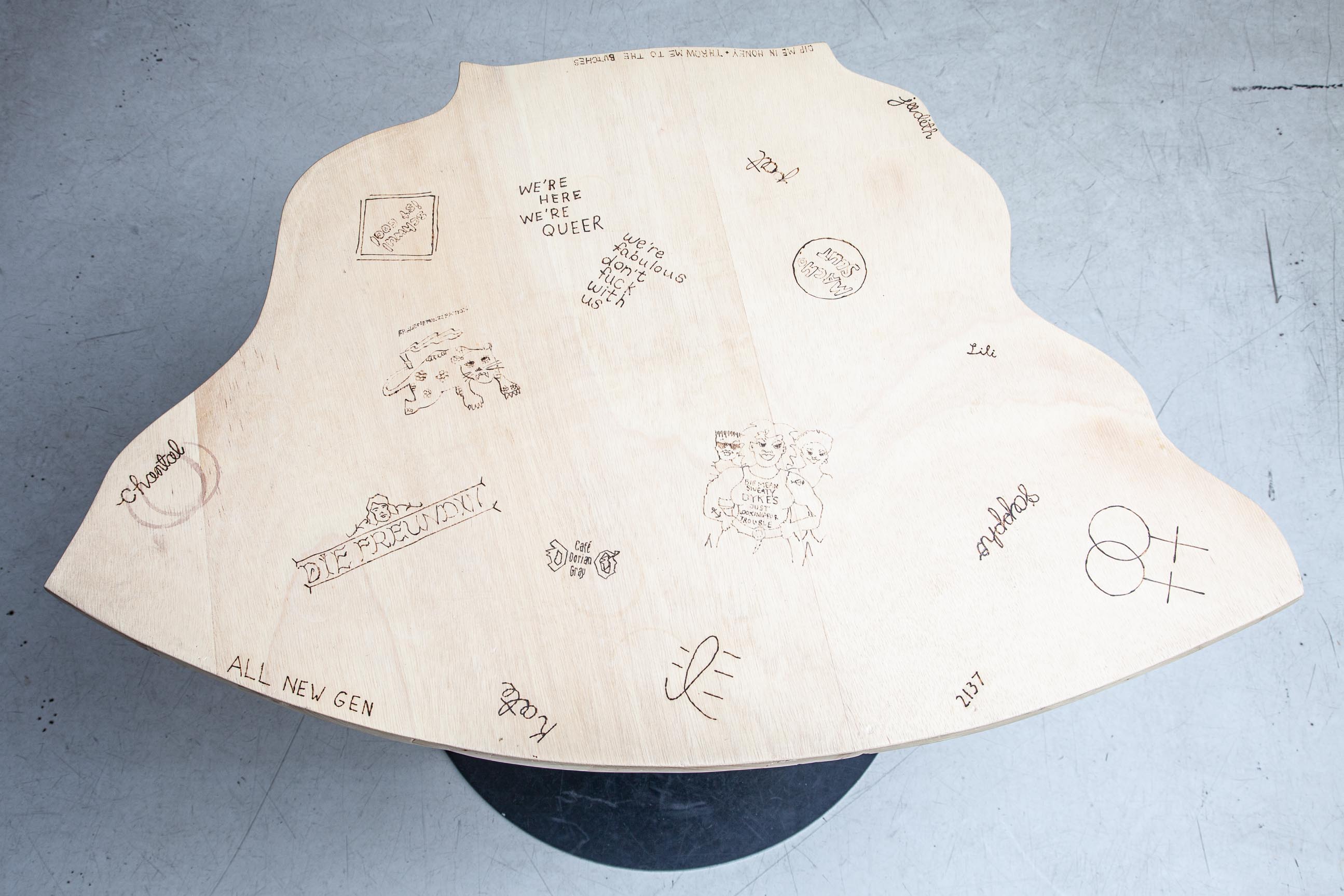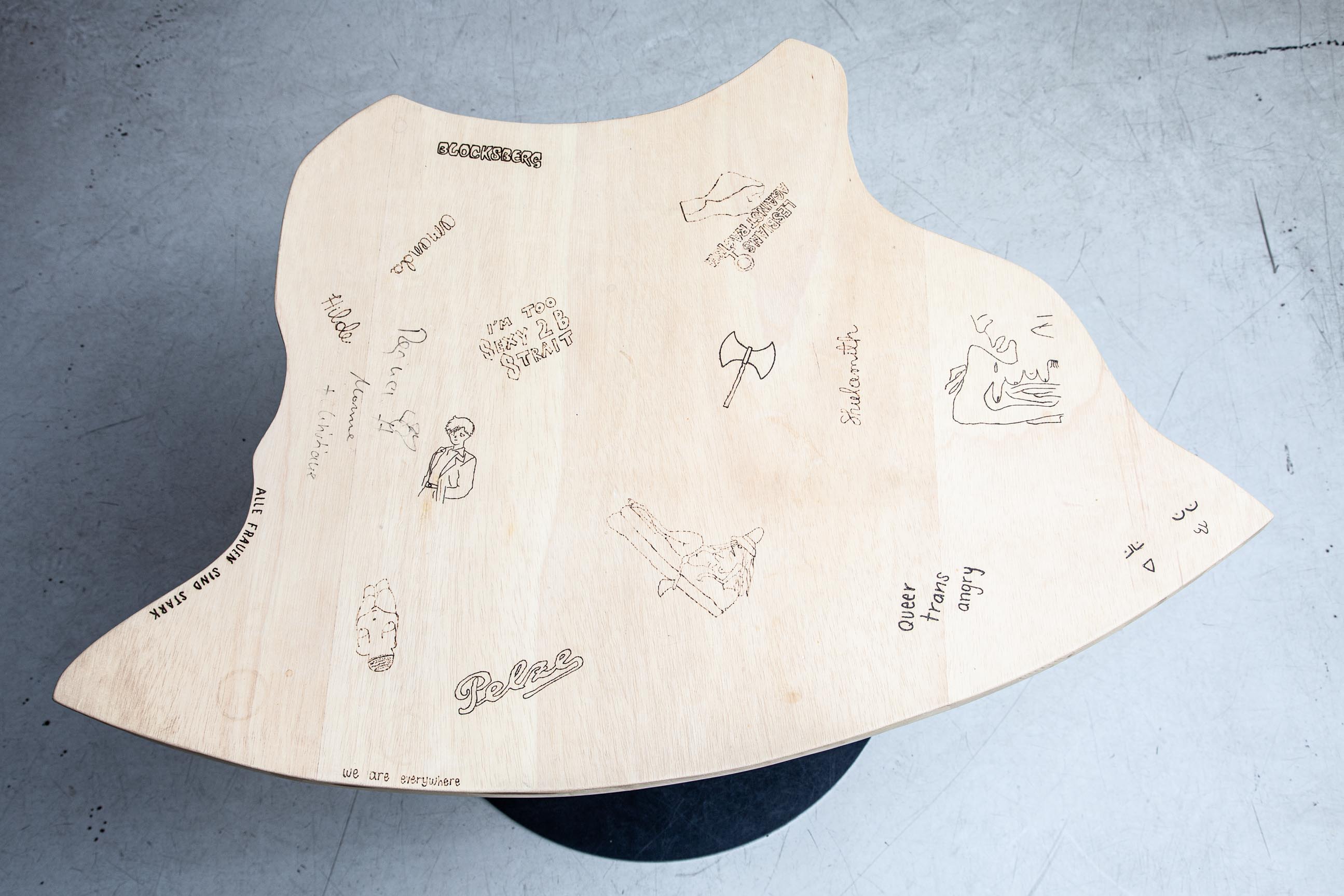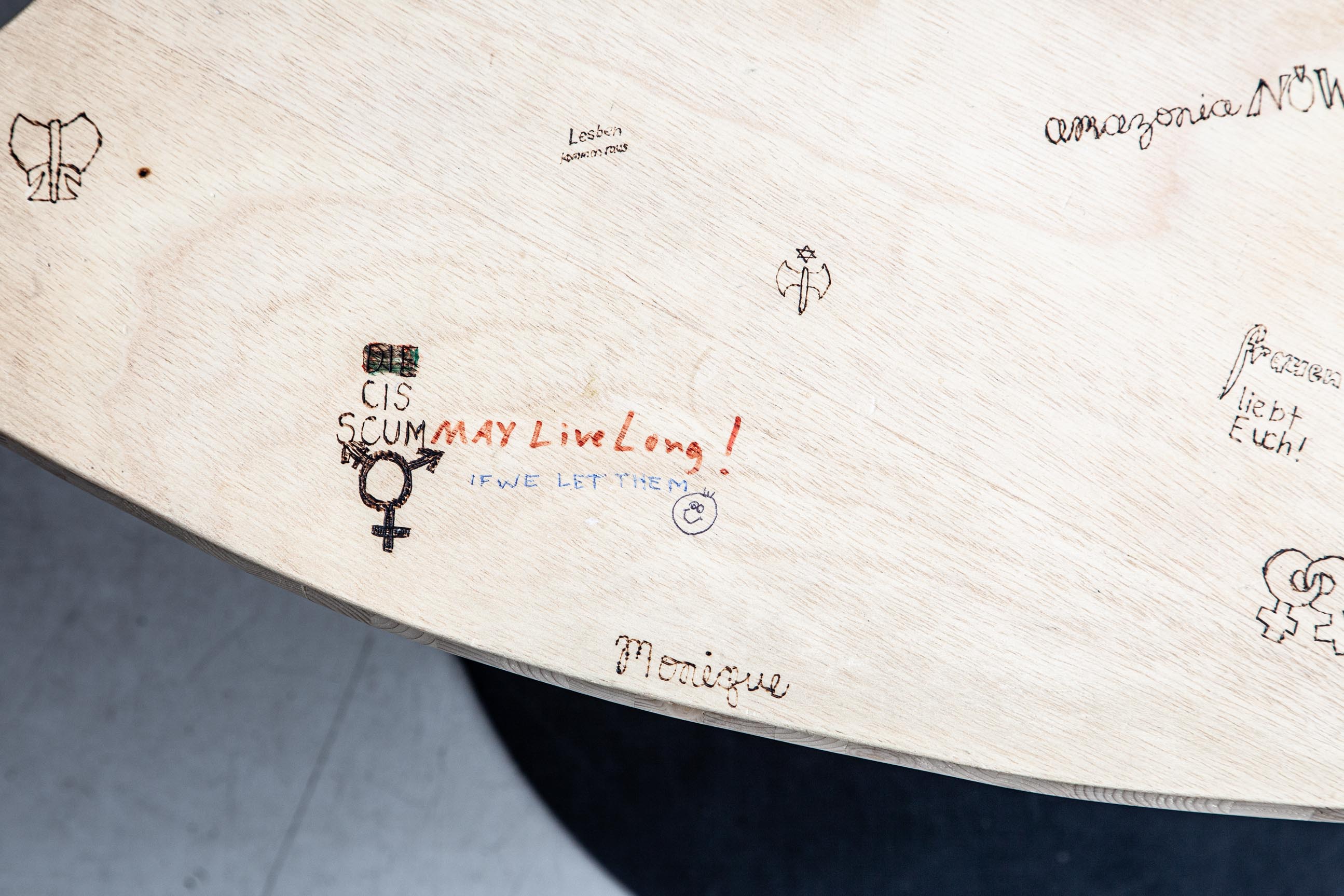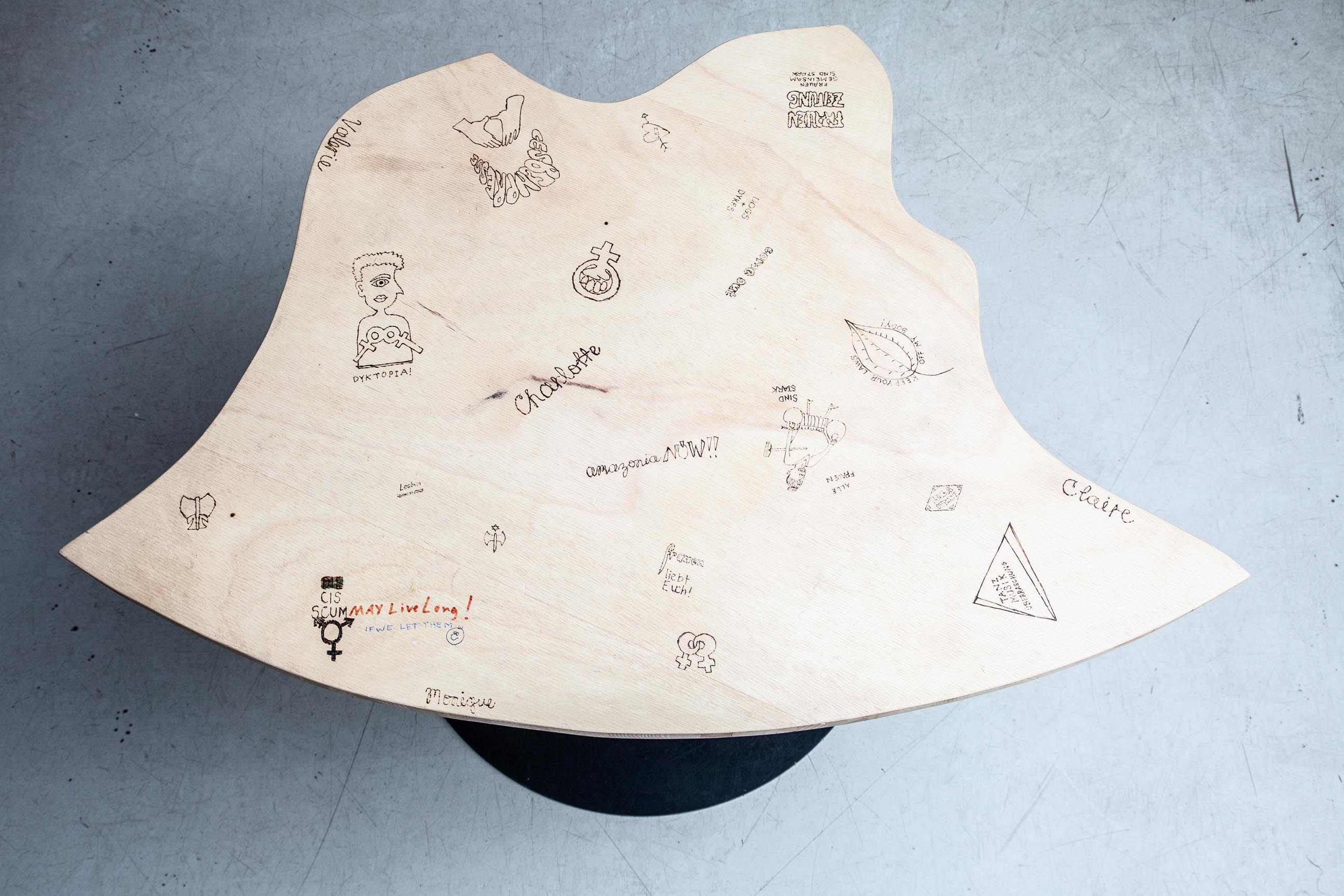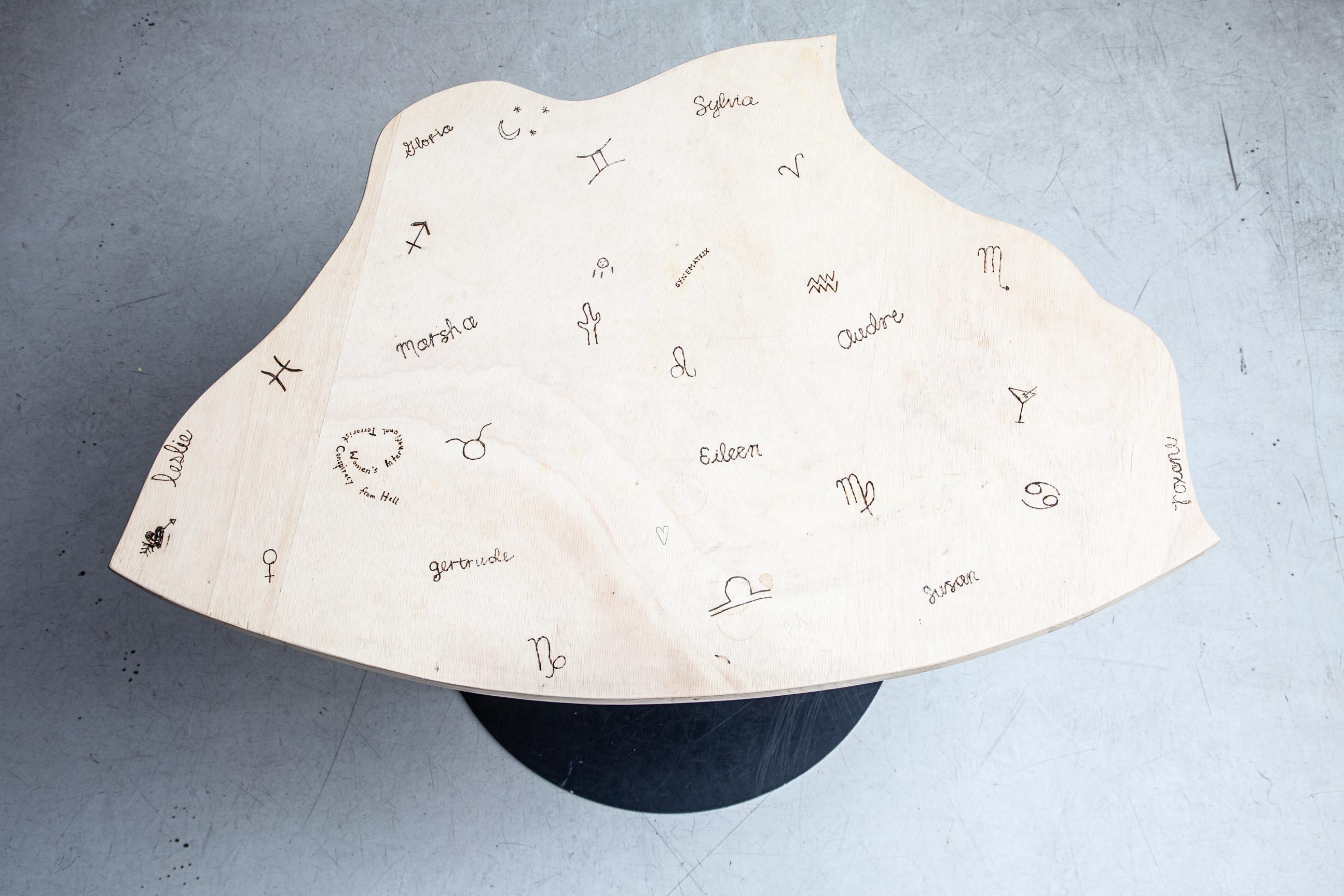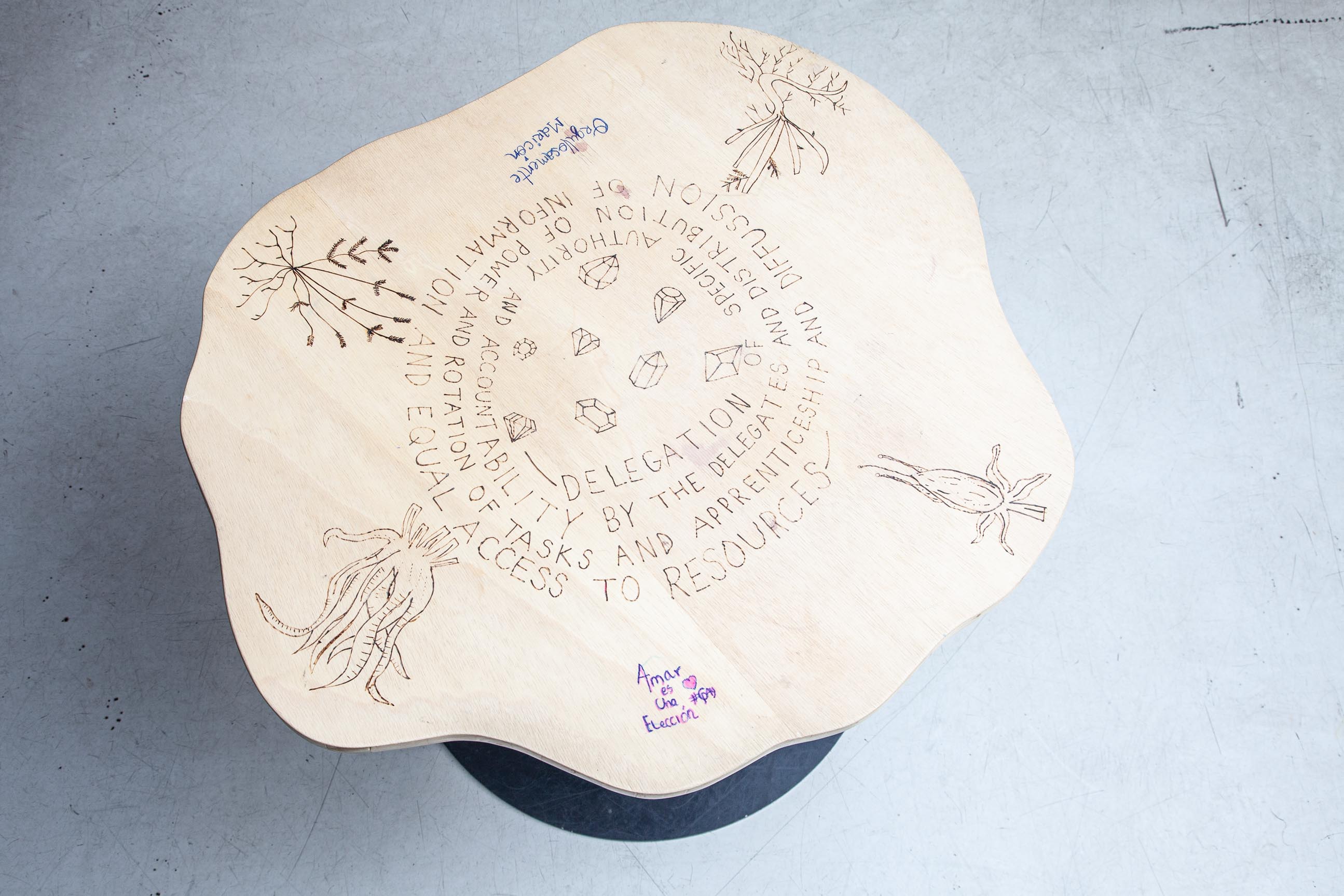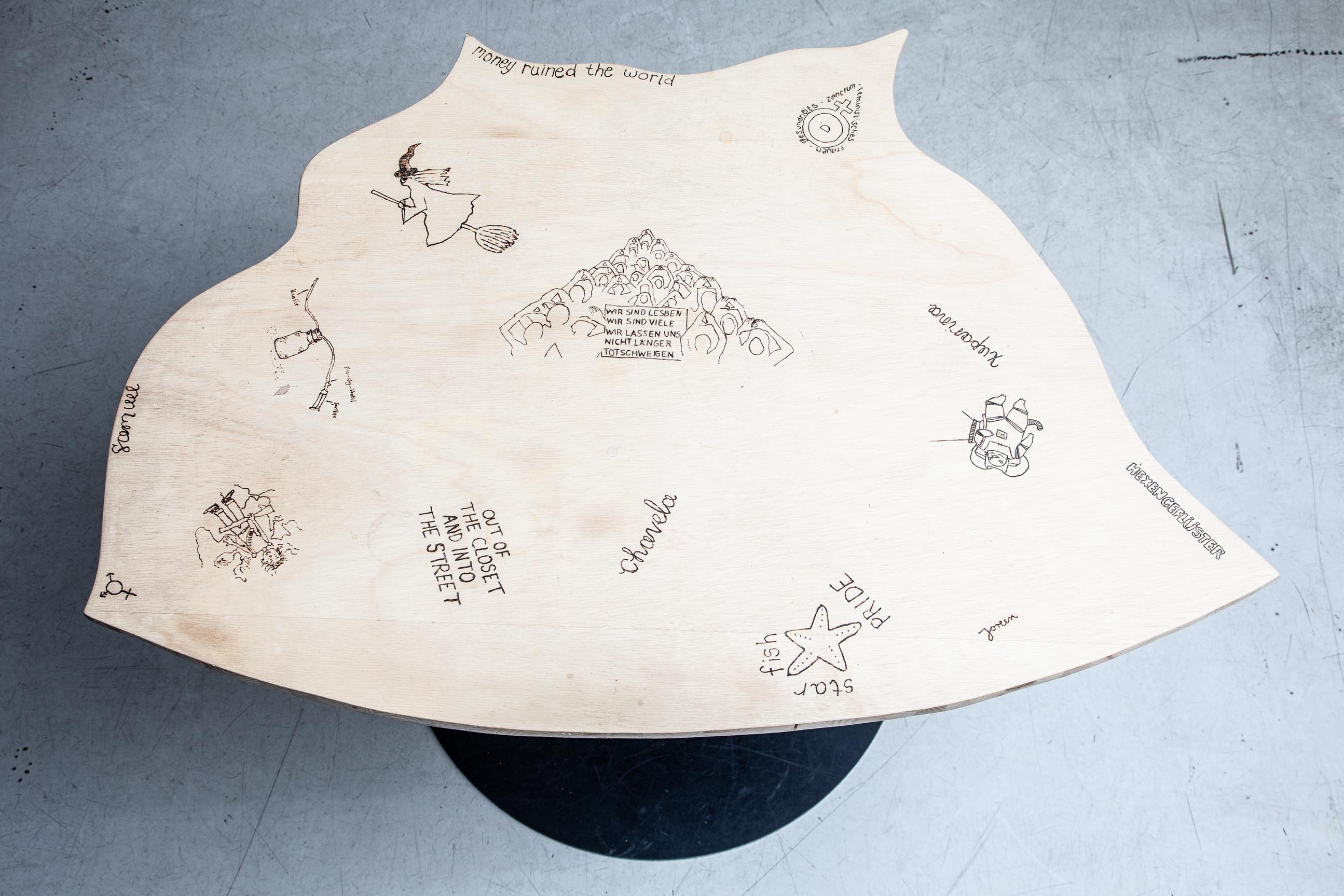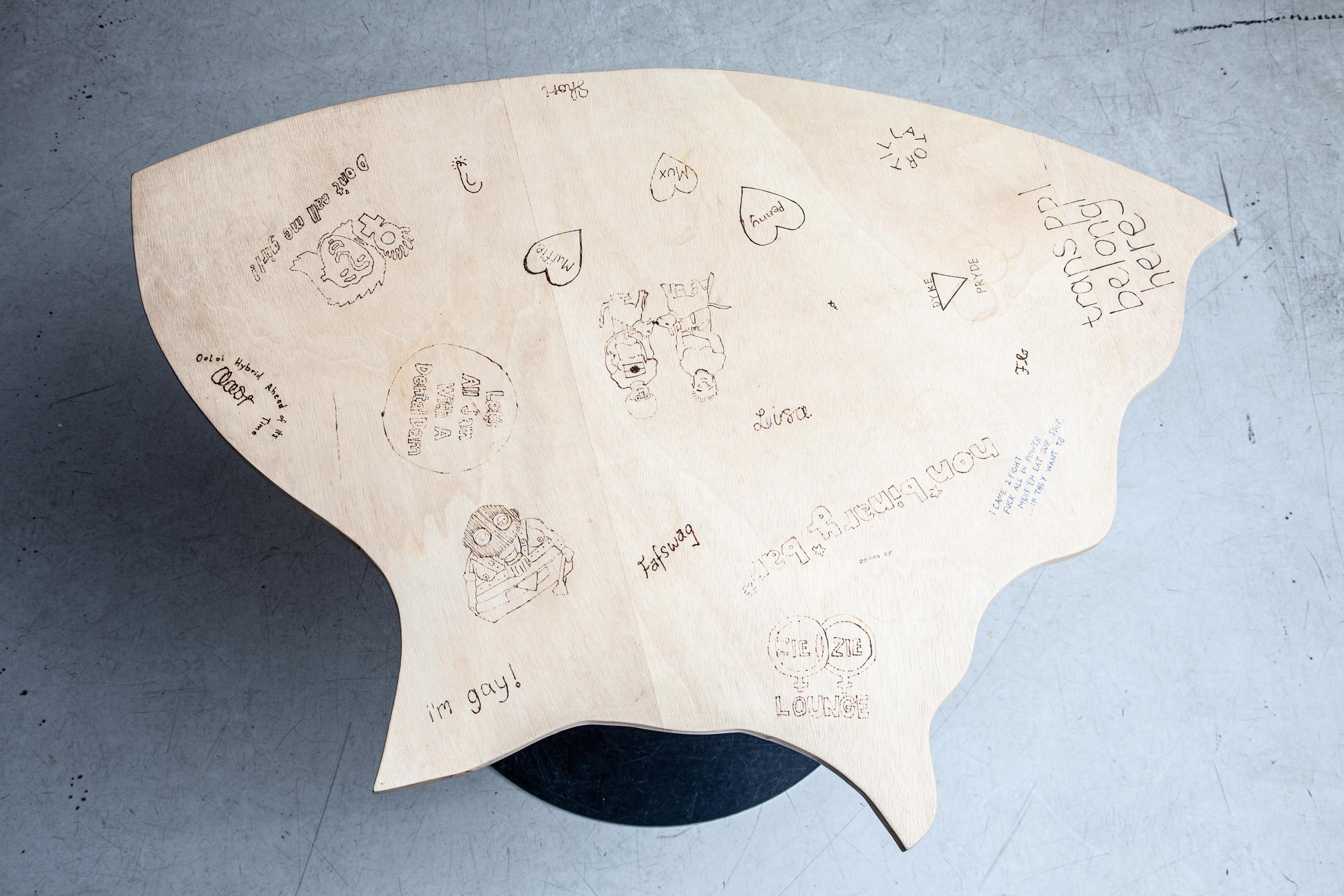Dyke Bar SPIRITS (021)
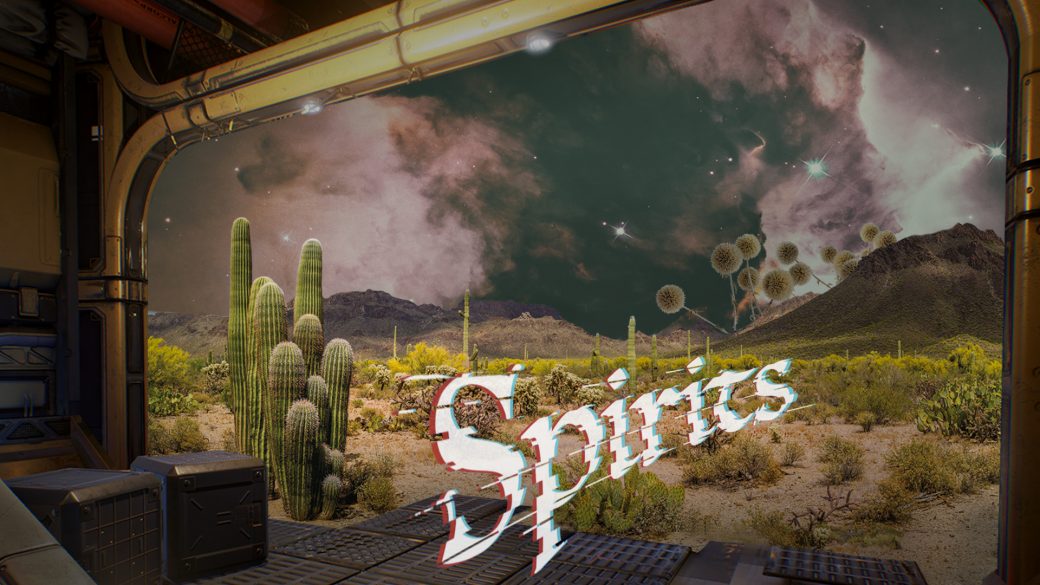
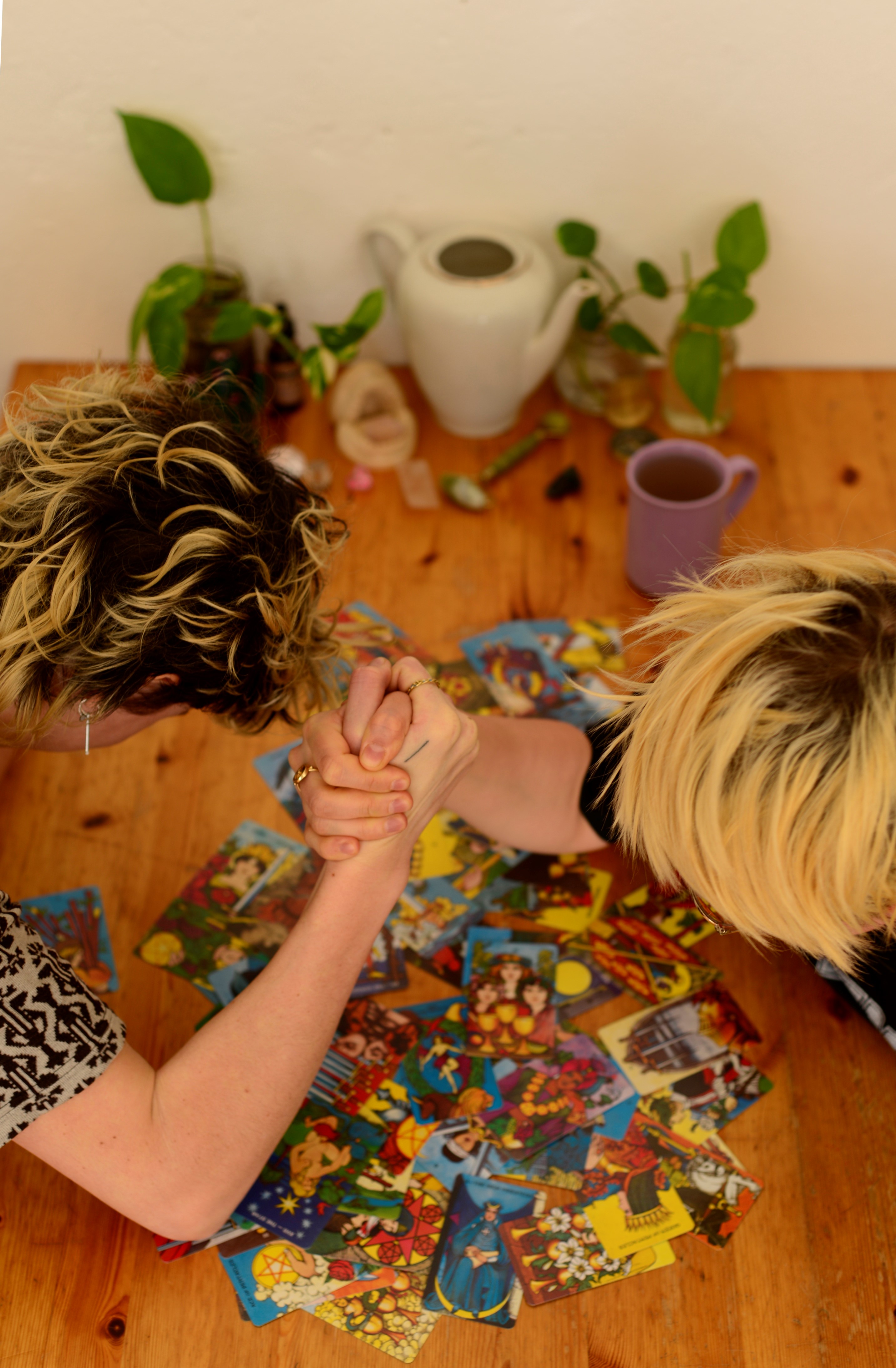
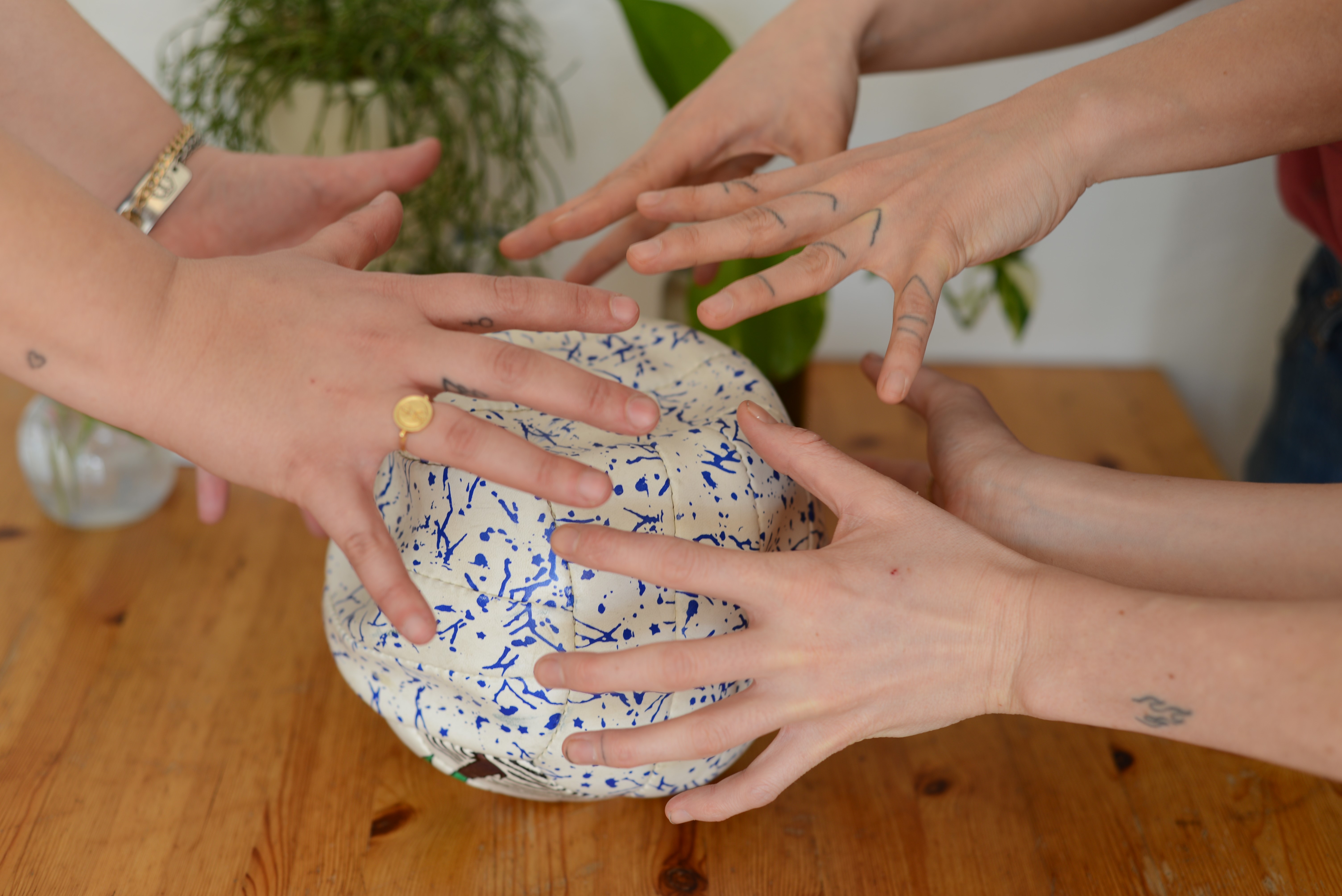
For the duration of the Year of the Women*, the cafe within Schwules Museum will be transformed into a dyke bar, envisioned and realized by the interdisciplinary artist collective consisting of Ernest Ah, T Blank, and C Detrow.
Bars, pubs, ballrooms, and clubs have always served as safe havens for queer people, both as places to meet up and celebrate, as well as spaces to organize politically. From the women’s clubs of Weimar Berlin in the 1920s to the legendary Stonewall Inn in New York in the 1960s and 1970s and the women’s collective cafes in squatted houses in 1980s Berlin, these spaces, run commercially as well as independently, have acted not only as places of refuge from the external demands of a hegemonic society and oftentimes homophobic families of origin, but also as the birthplaces of many contemporary political movements.
SPIRITS presents a restaging of the dyke bar by encapsulating an iconic part of queer culture. The installation deals with the disappearance of these self-organised spaces, resulting from the dire forces of capitalist exploitation and gentrification affecting “lesbian” spaces and leading to their death, while “gay” spaces by and for a cis-male clientele have historically been kept afloat through commercial practices and profit-based business models. Moreover, SPIRITS addresses the age-old issues of inclusion and exclusion present within queer communities, and with this, the ongoing debates around access to space: by whom and for whom is queer space engineered?
SPIRITS is not a singular eulogized cry for the disappearing dyke bars of the past, places that have served central roles in lesbian communities for decades on end; it is a complex effort to pose the difficult question of how, exactly, to revive the dyke bar, bringing back a queer consciousness that actively rejects the “ladies only” exclusionary tactics of lesbian bars prior, while still holding dear and celebrating the hard work of past generations of lesbian activists, and their efforts to establish sacred, queer spaces. How, SPIRITS, prods, can tradition and the generative power of the dyke serve as a productive link between acknowledging the past, situating the present, and moving forward to envision a collective dyke future?
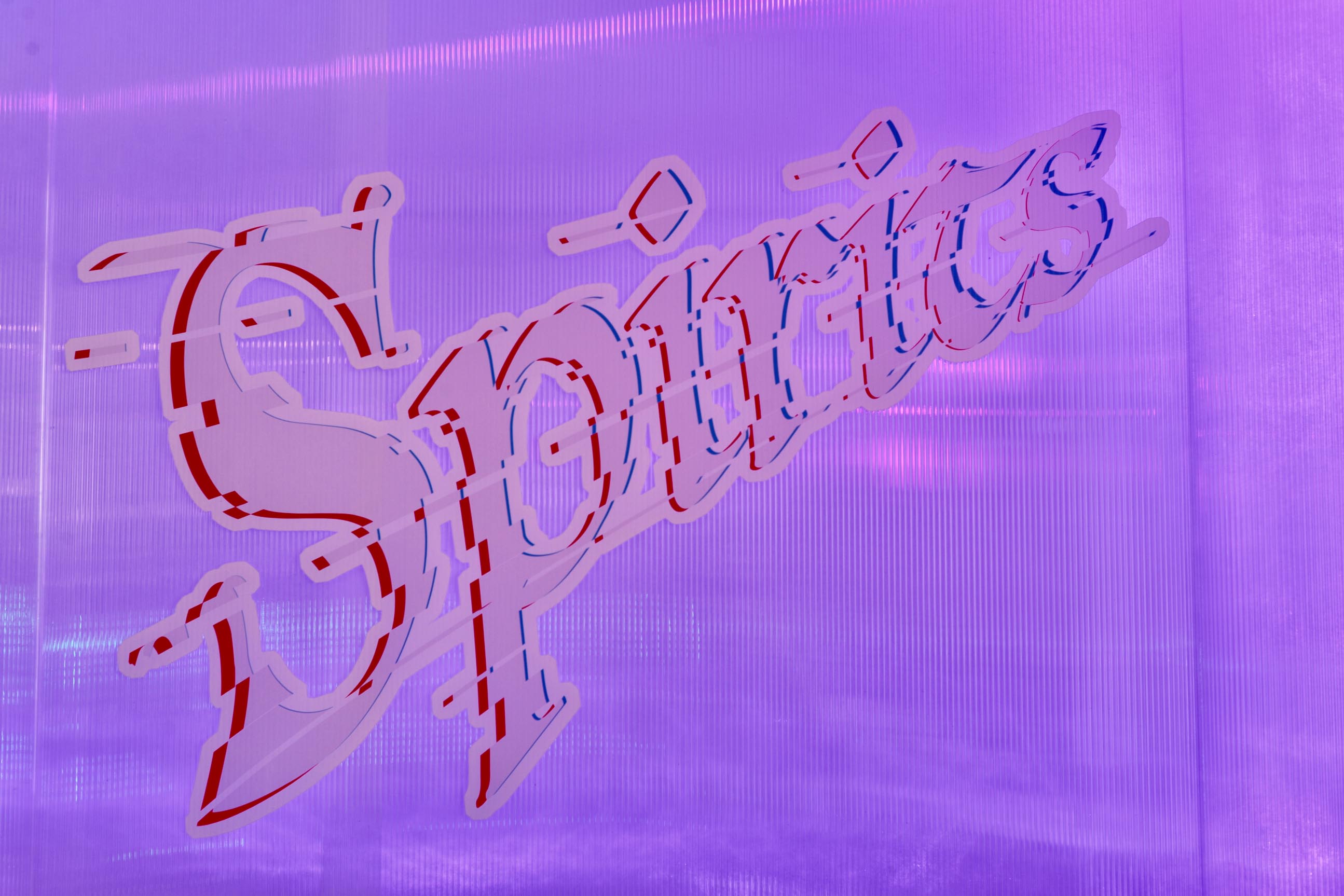
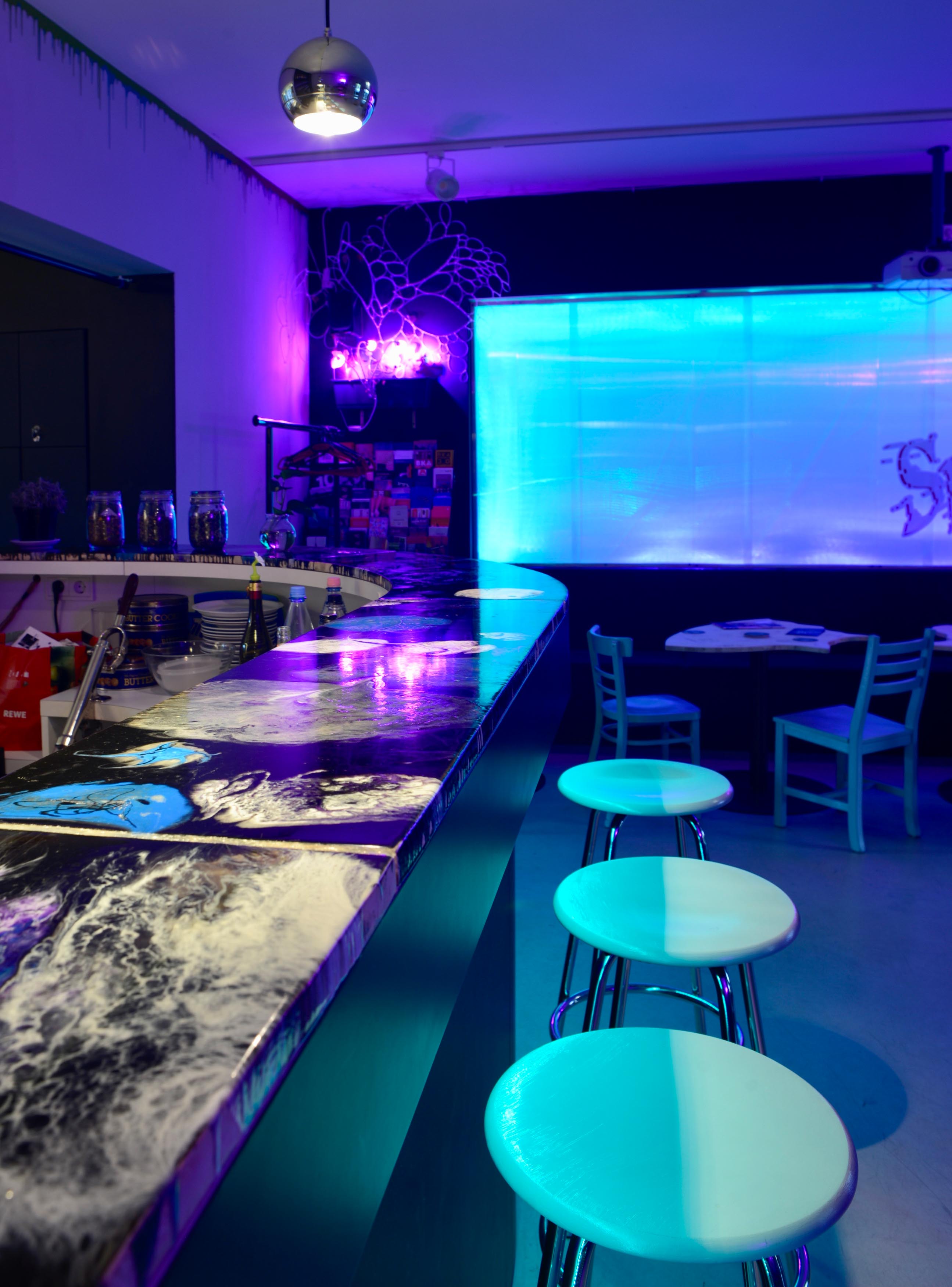
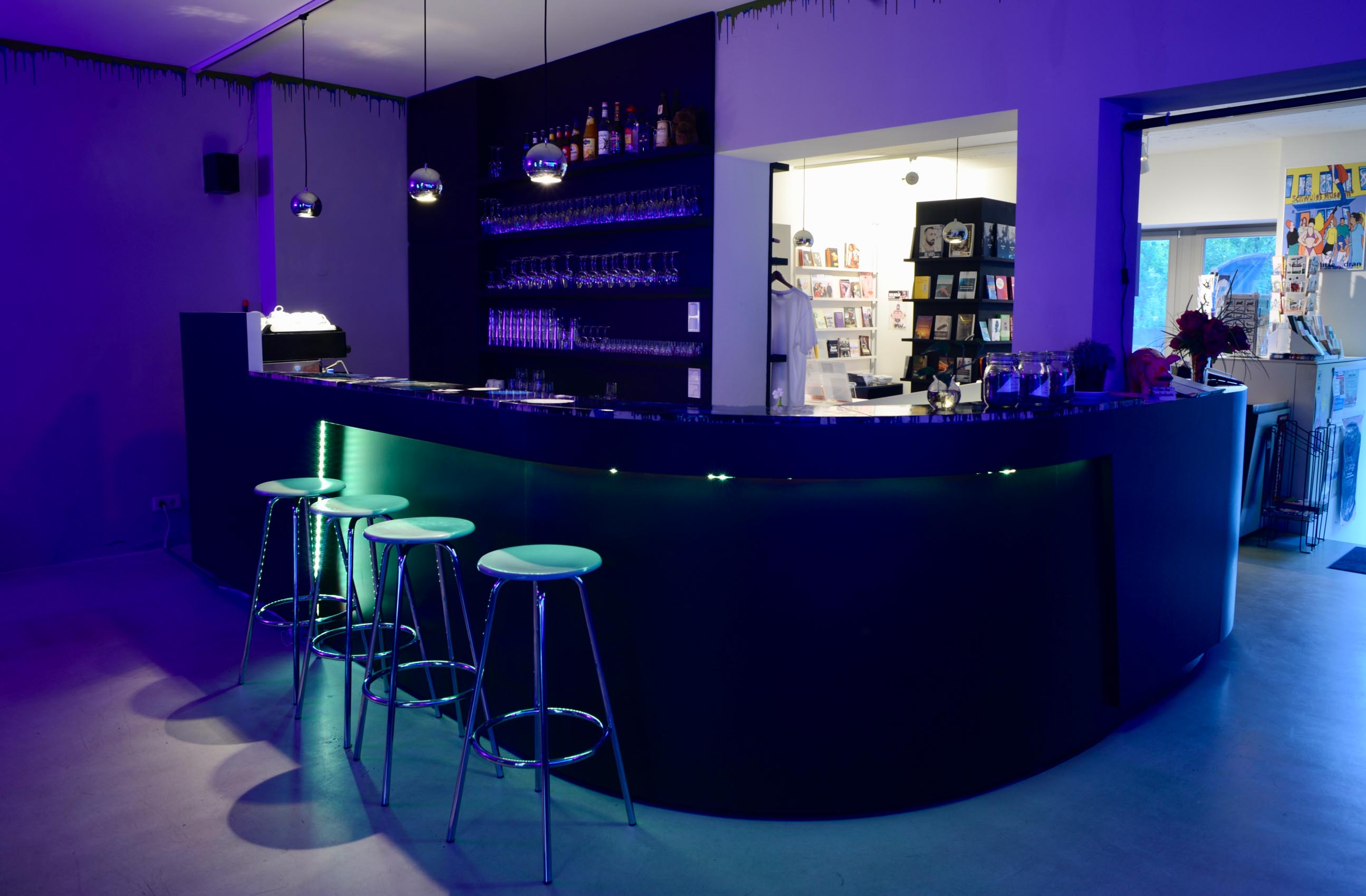
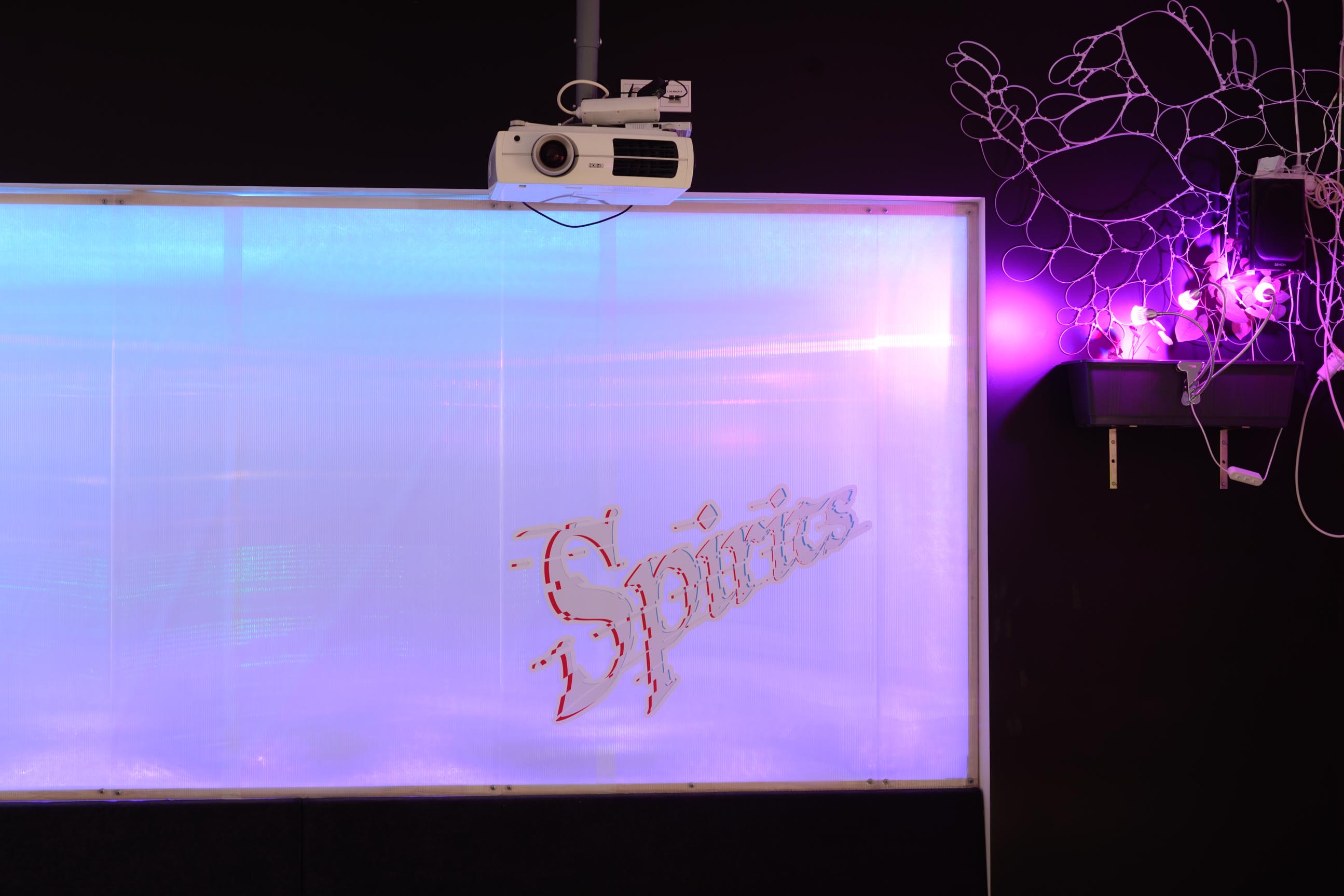
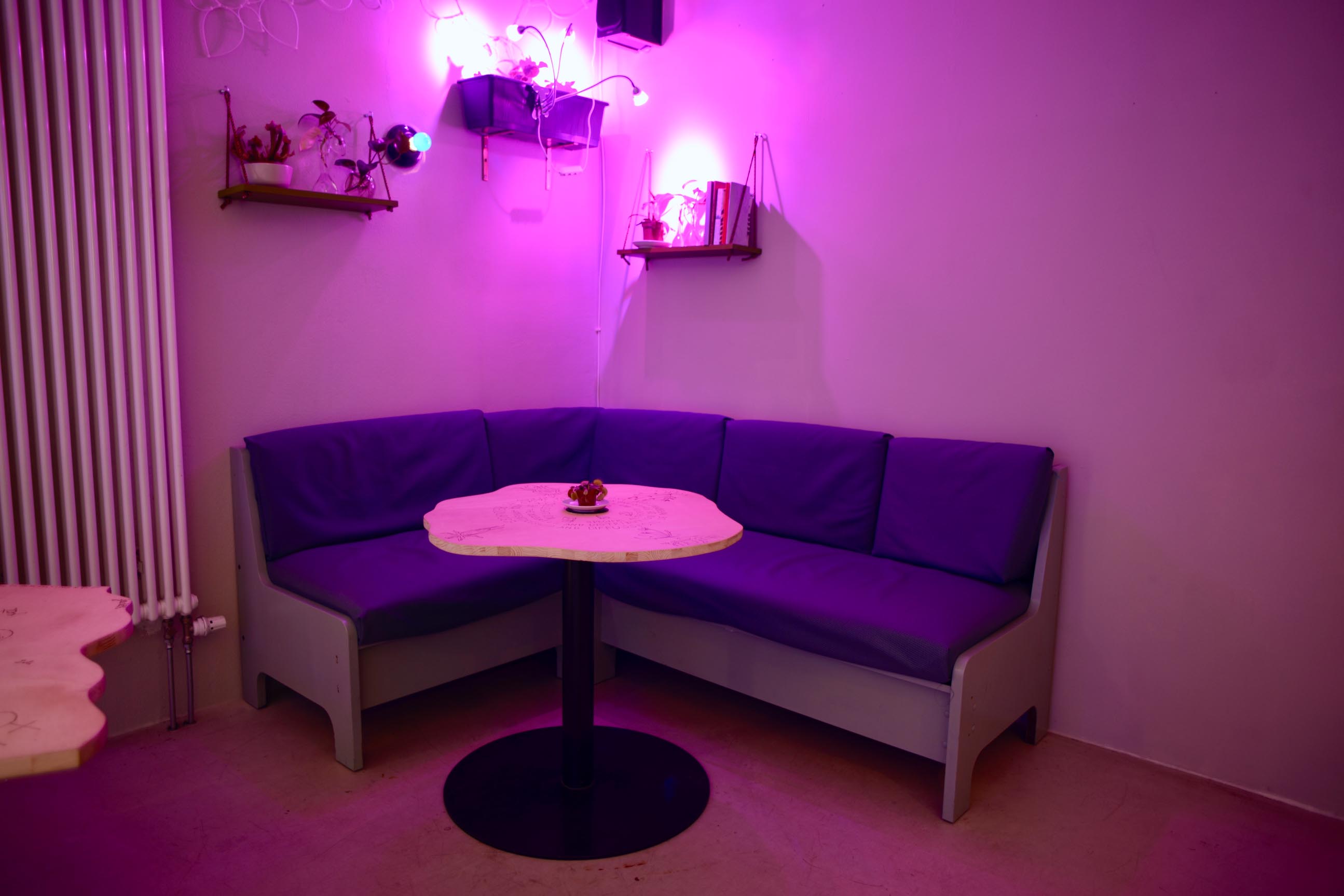
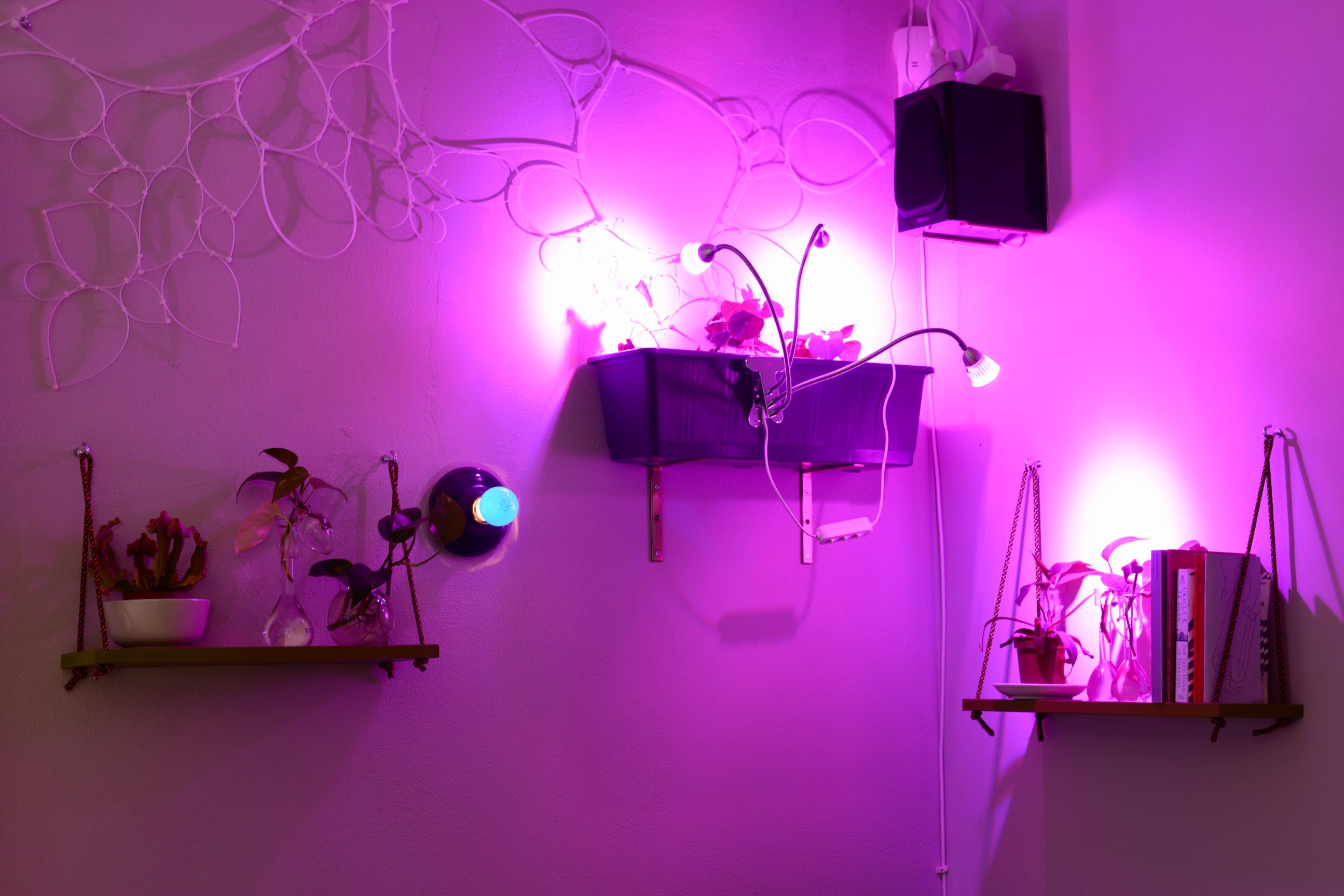
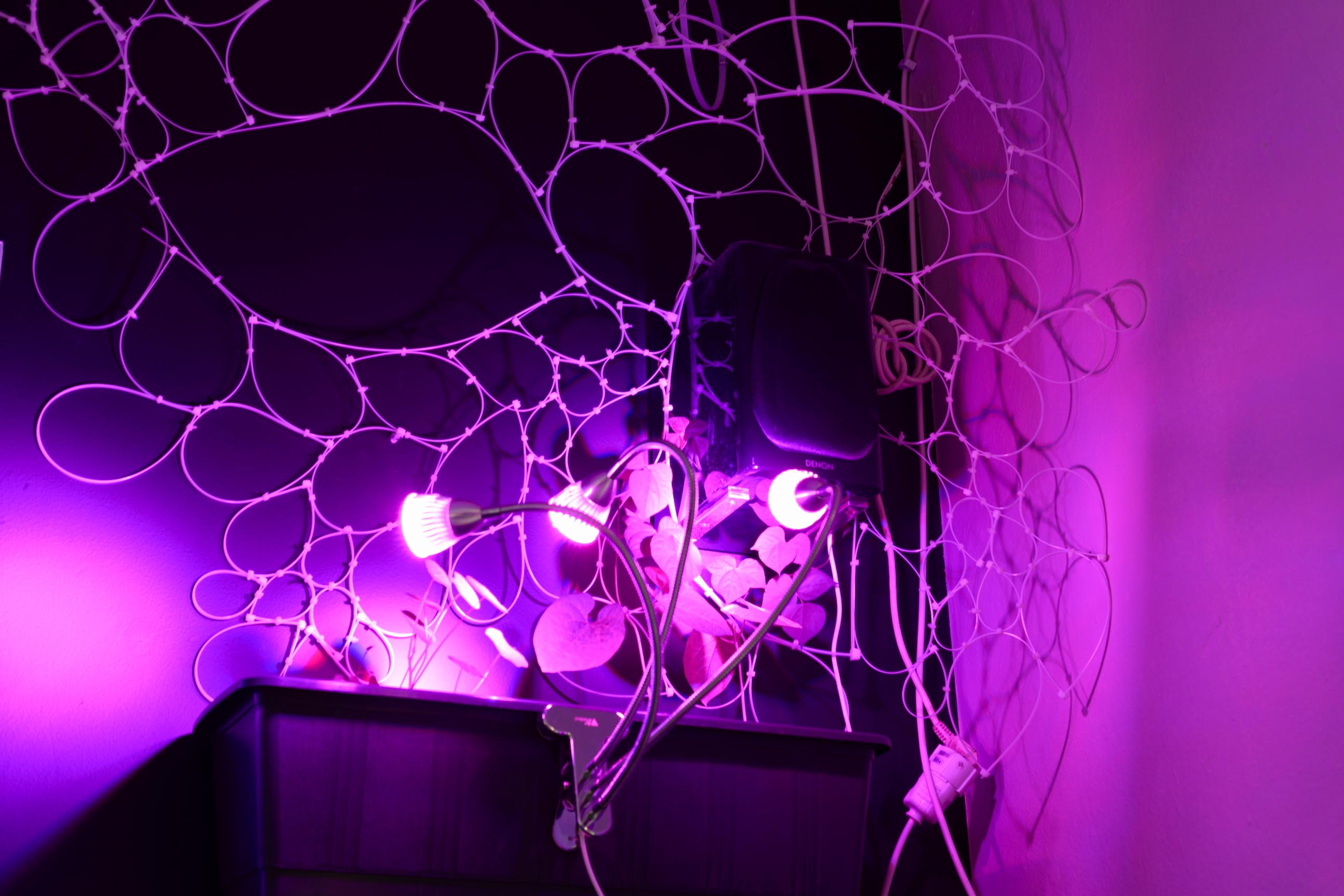
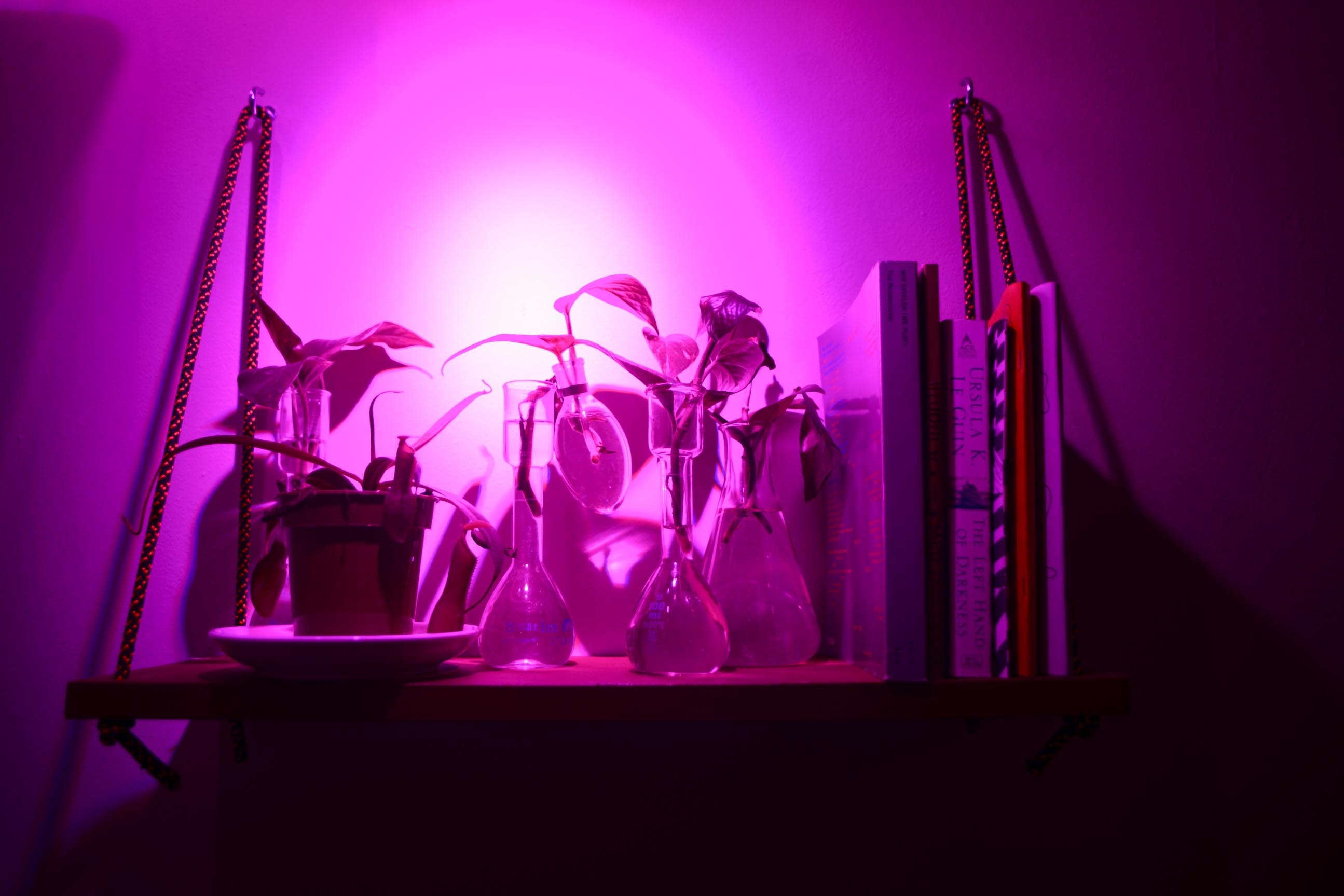
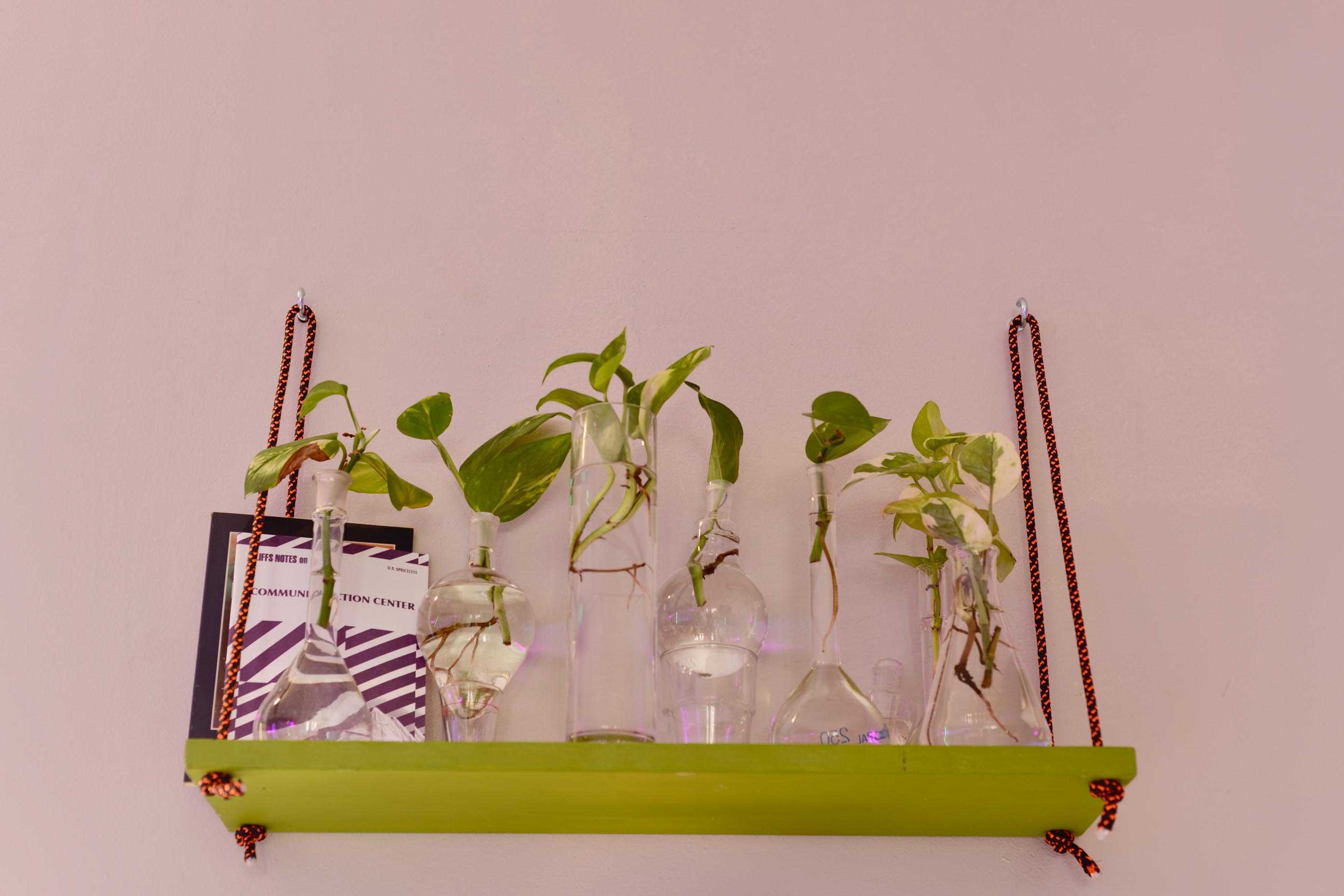
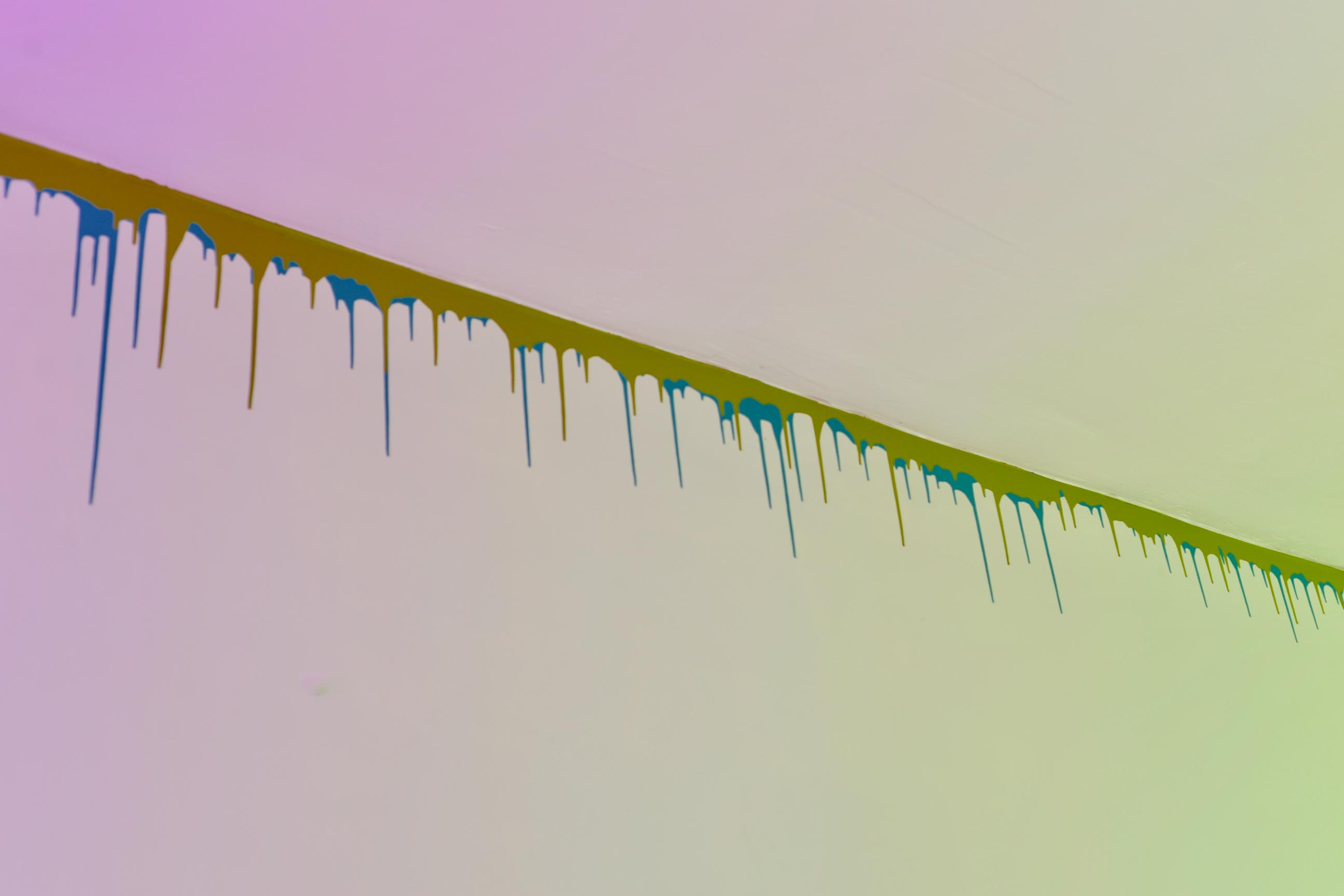
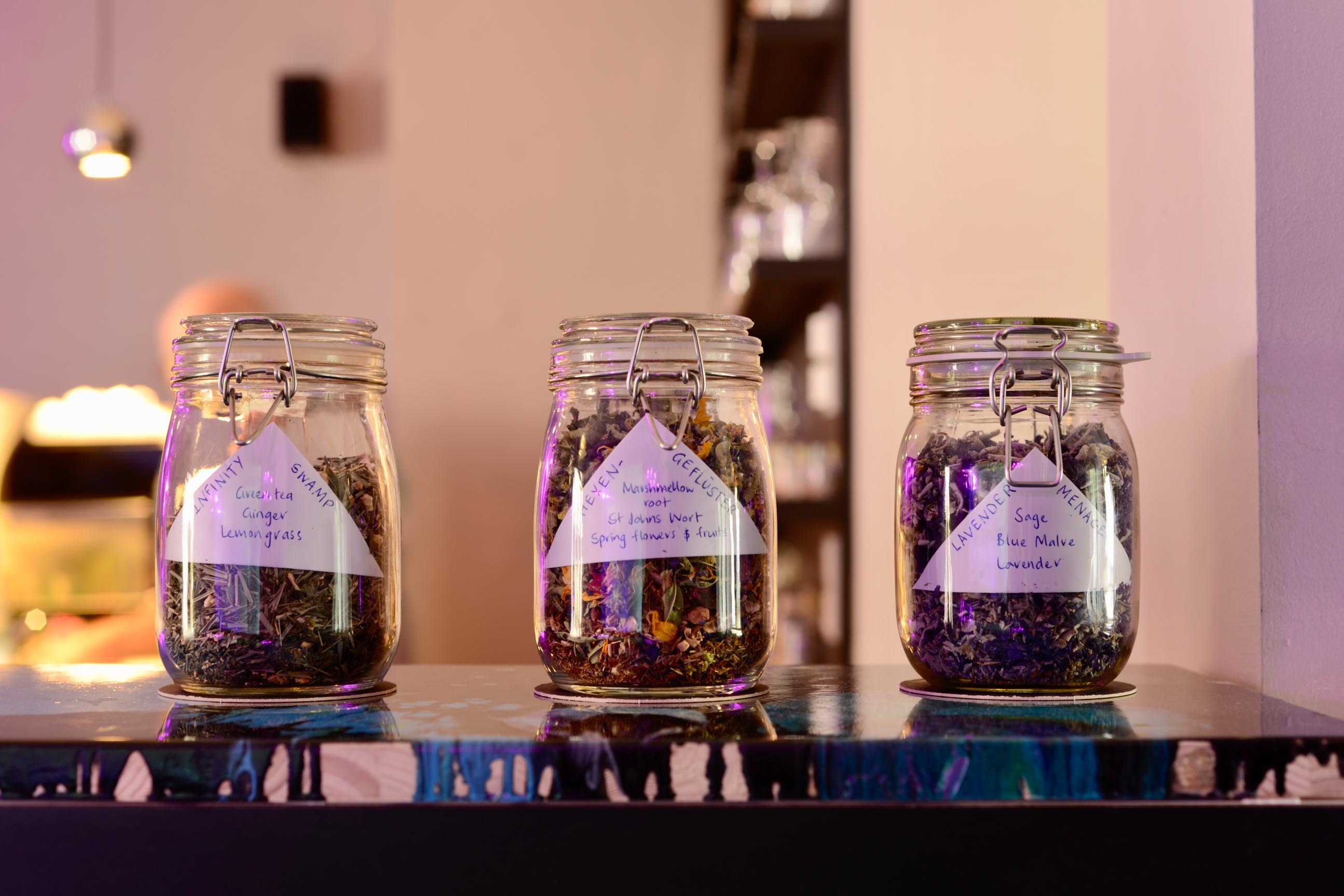
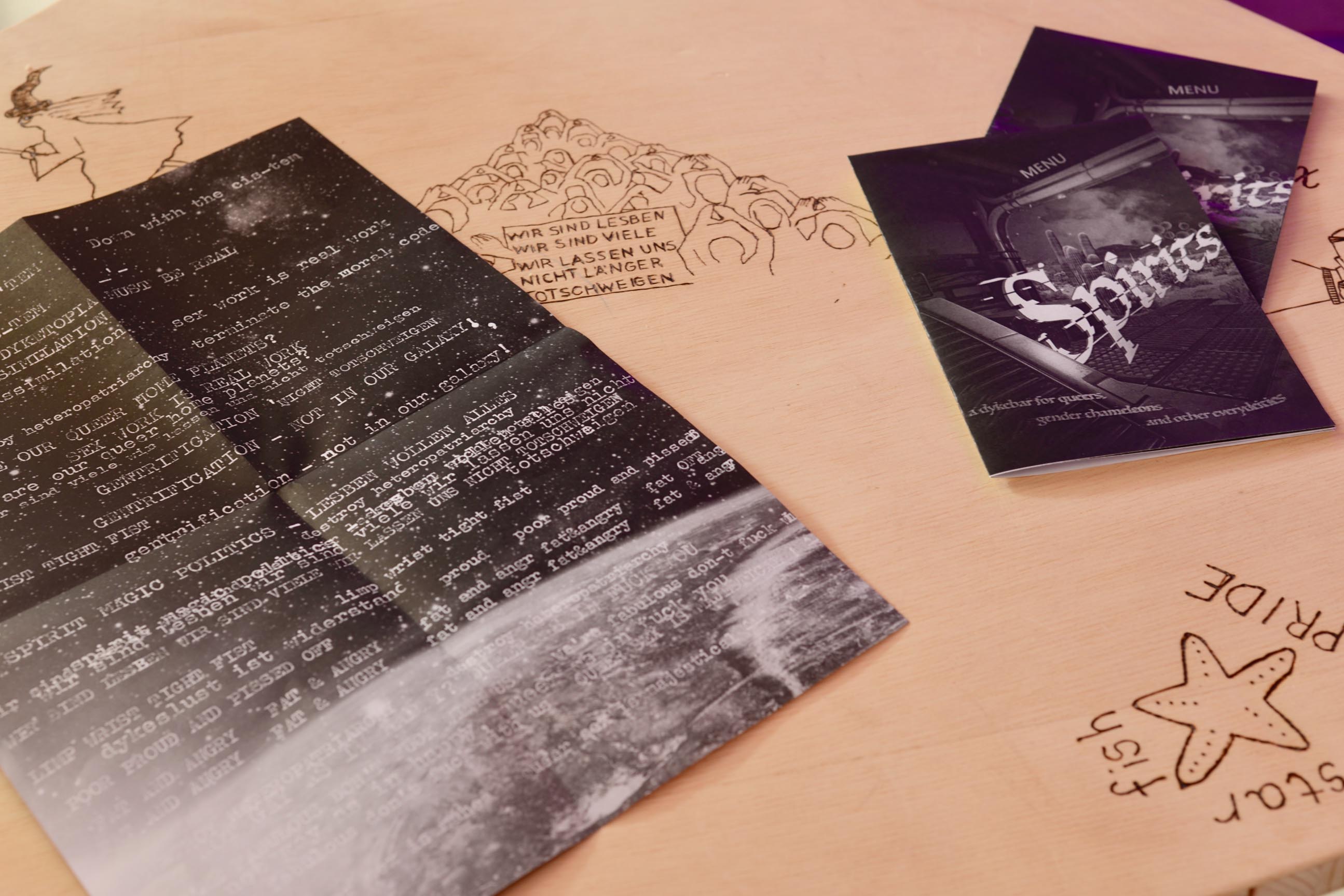
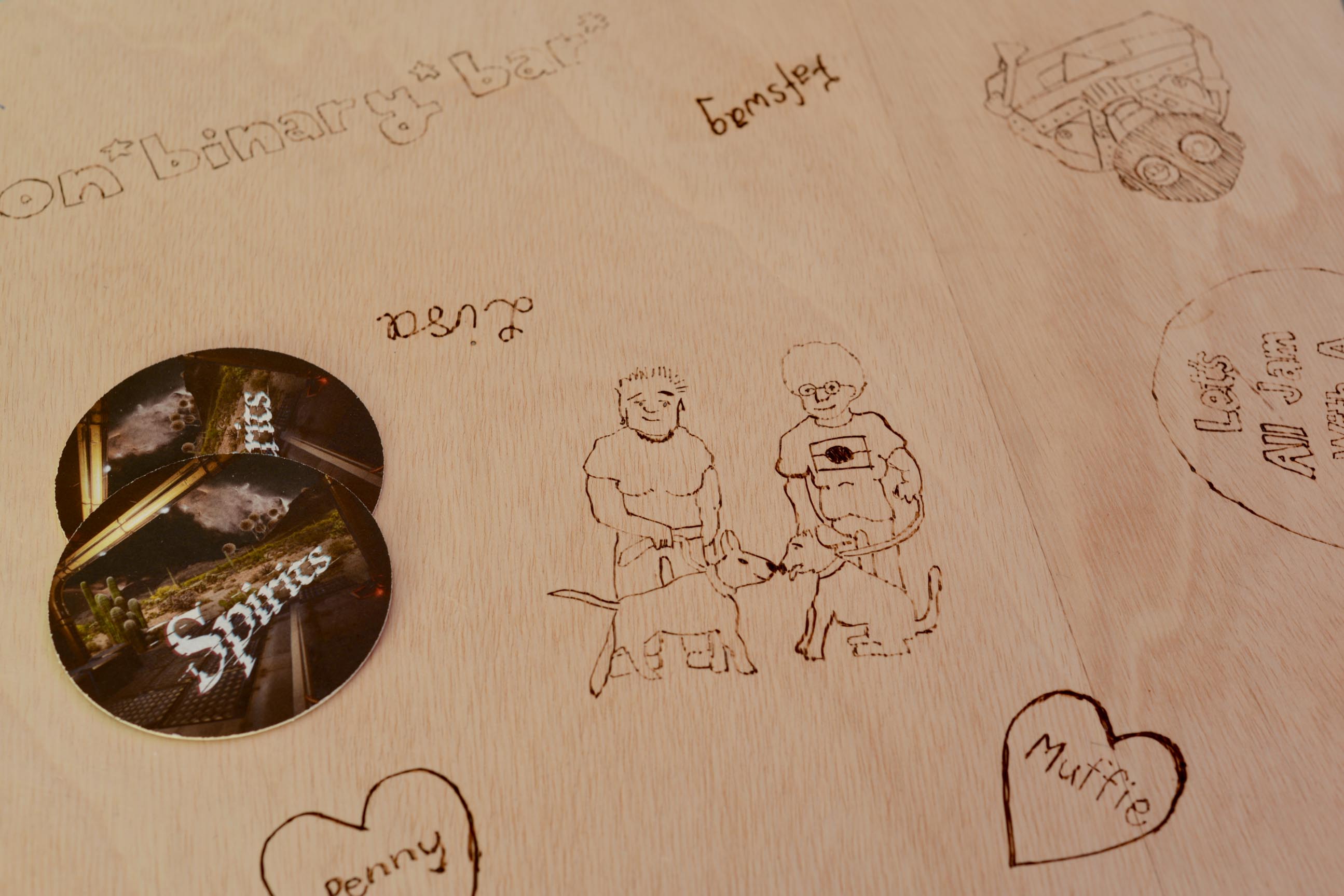
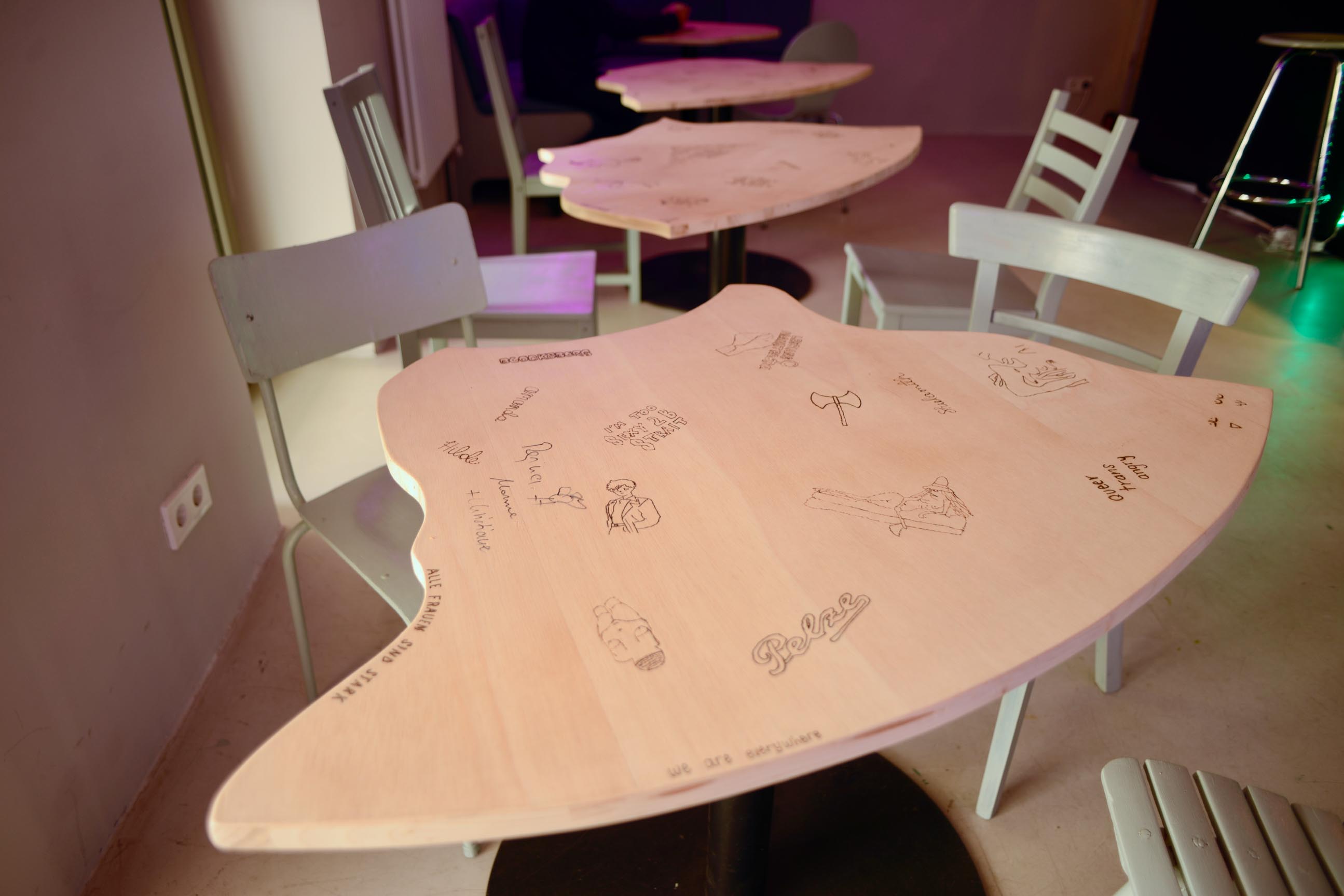
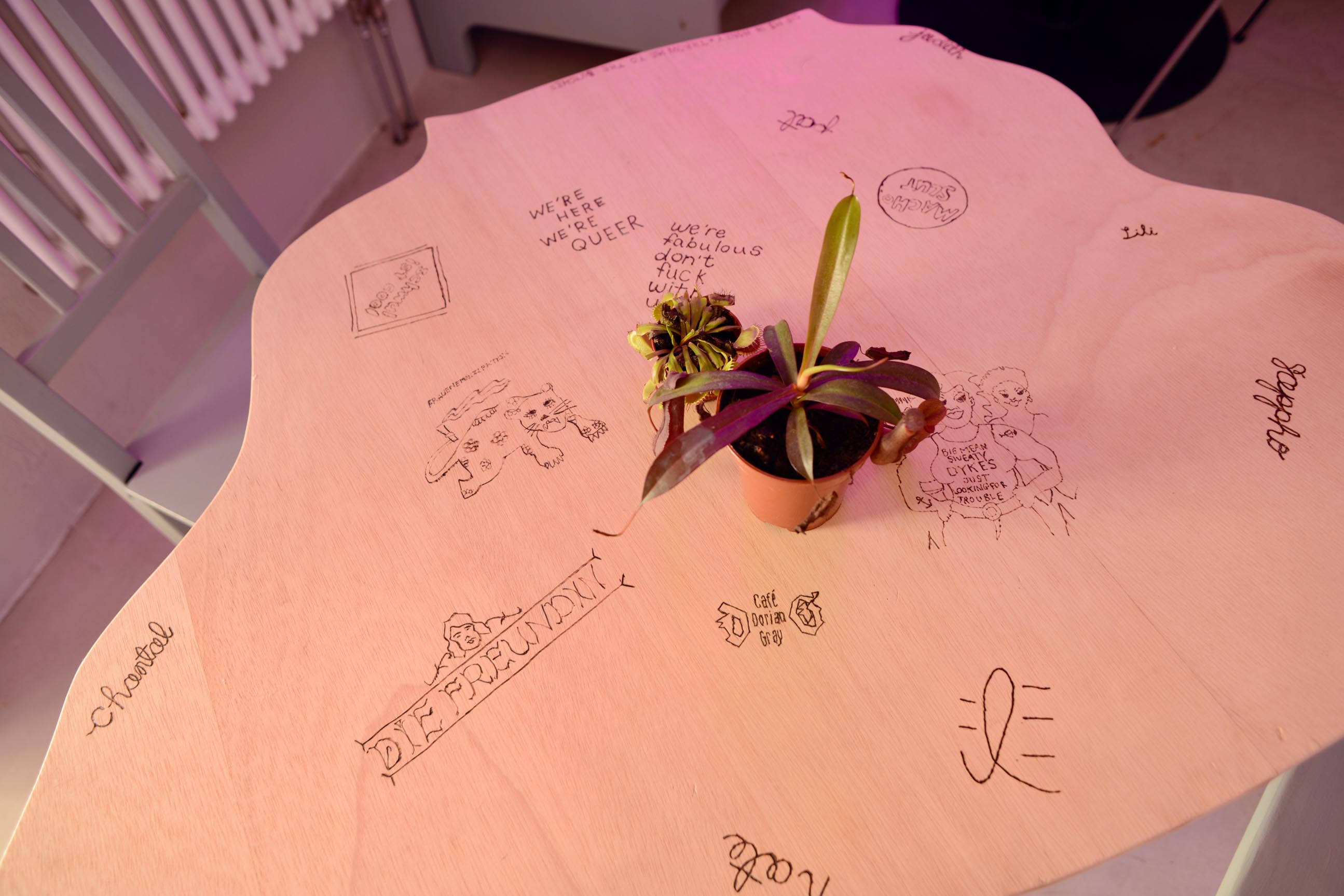
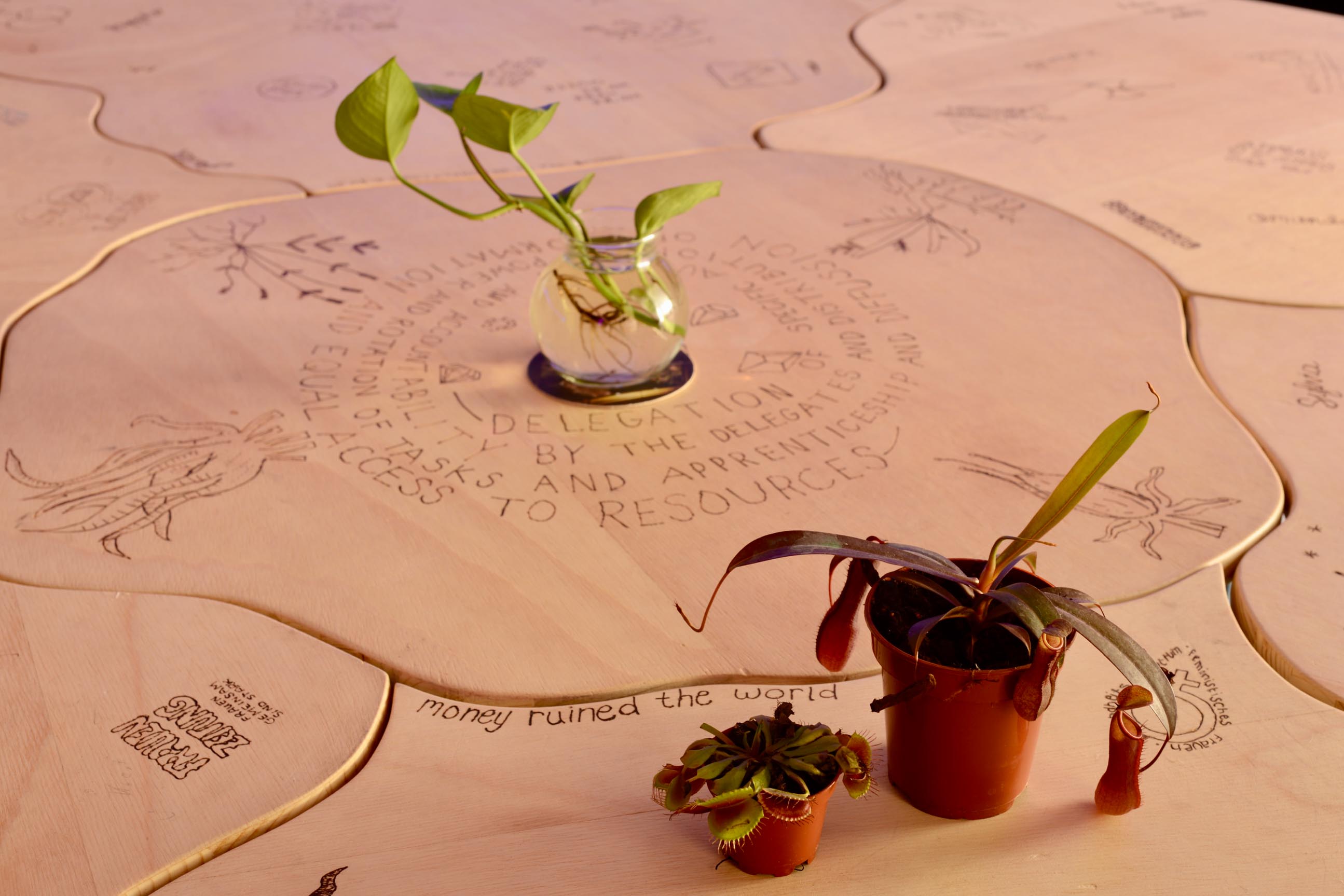
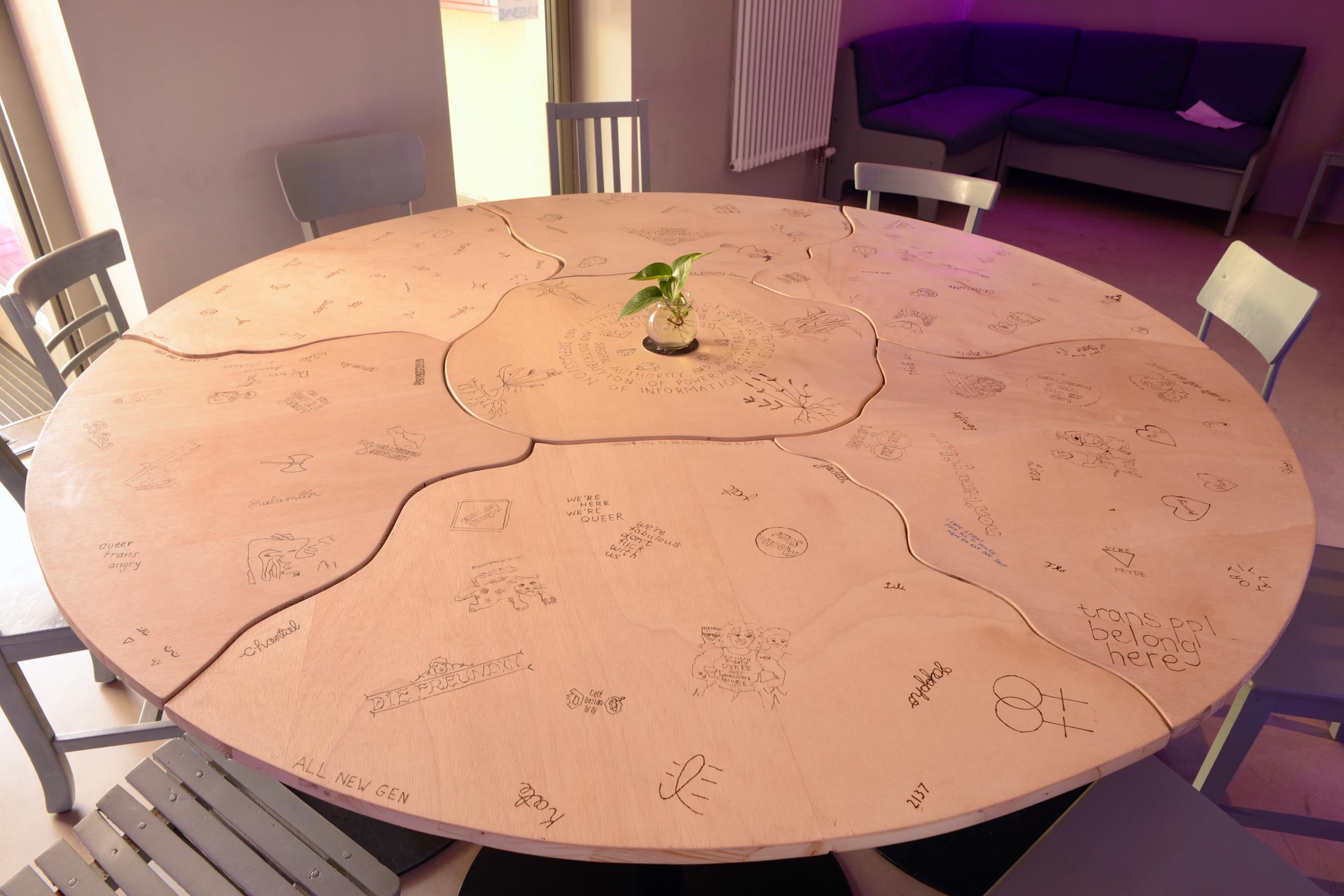
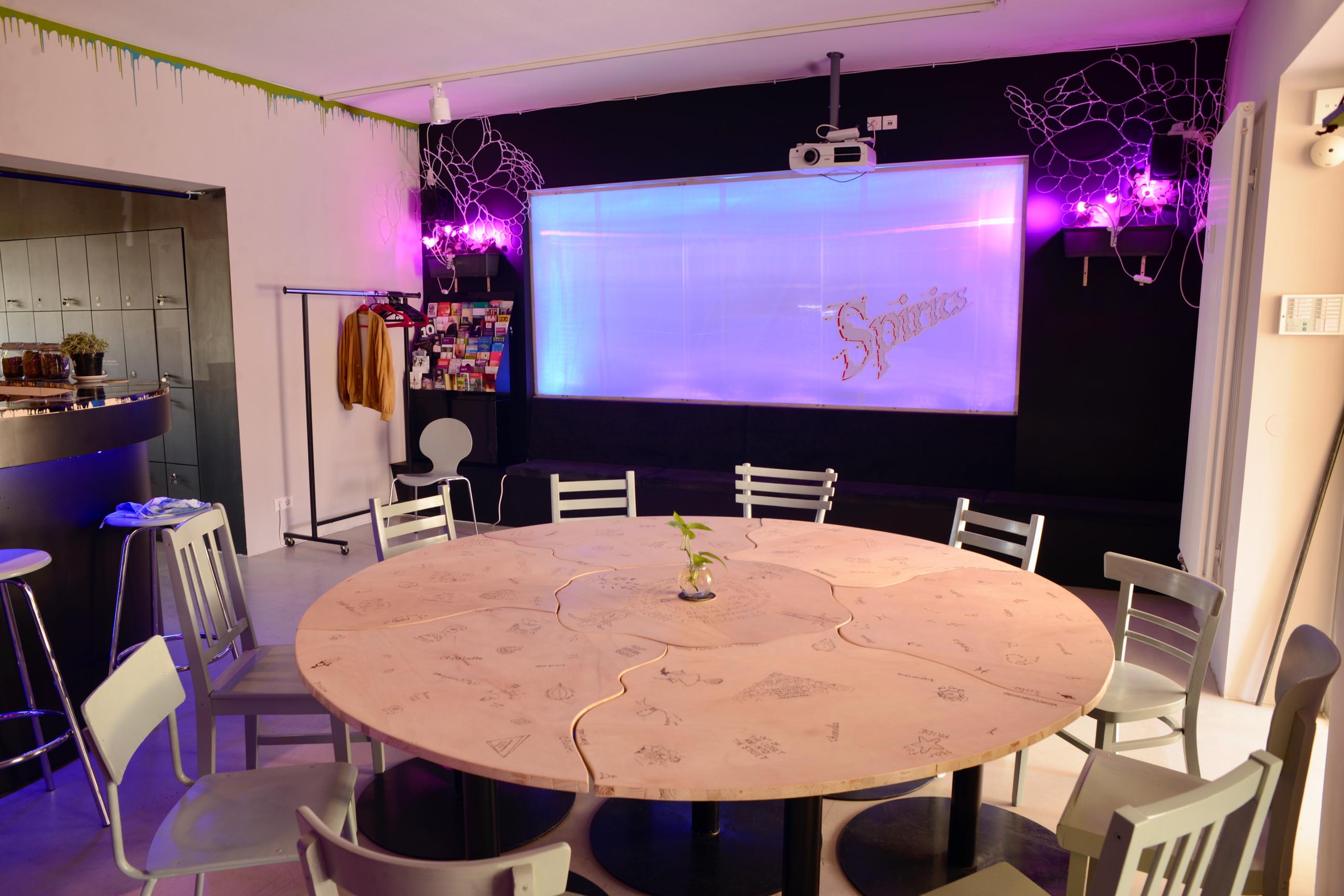
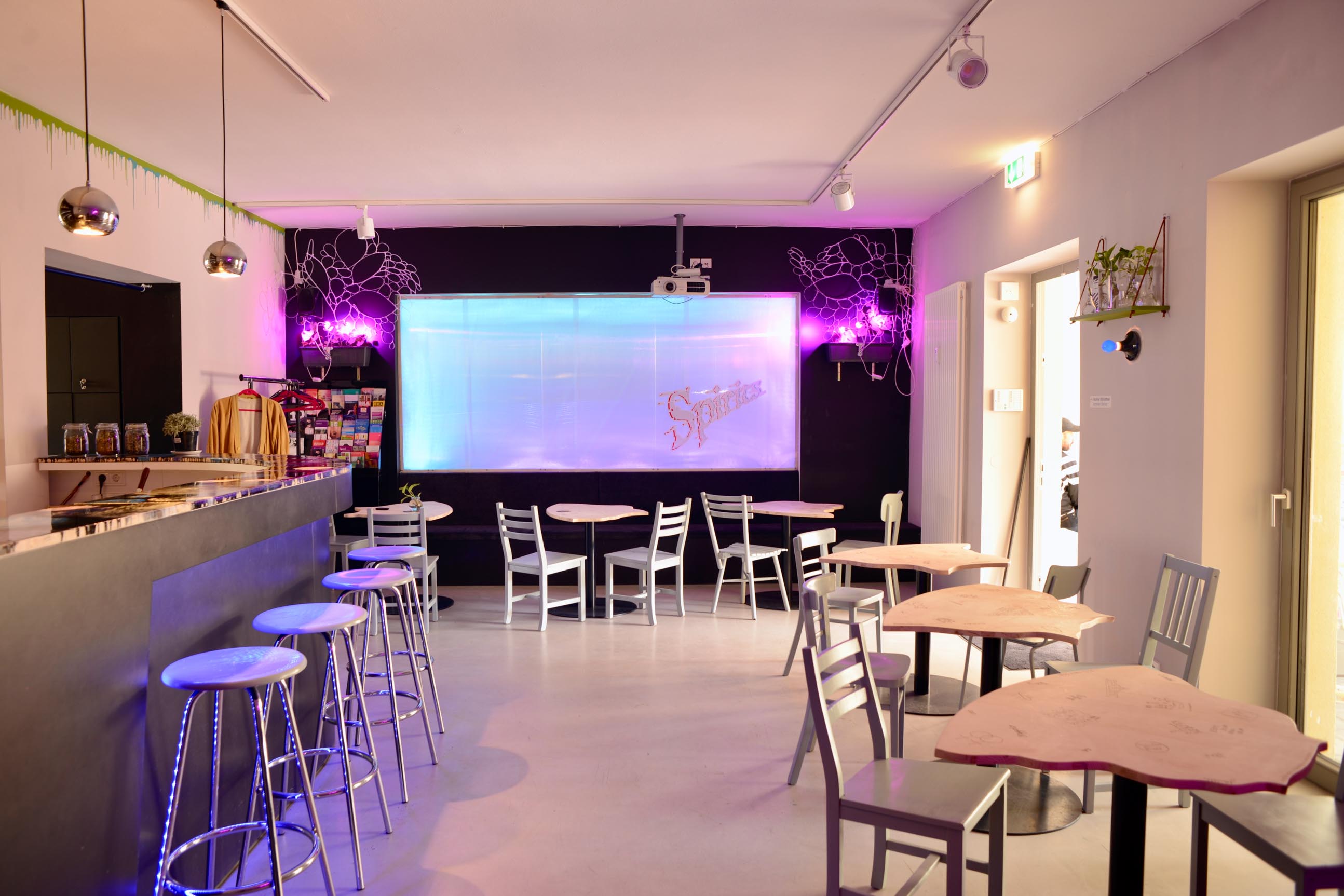
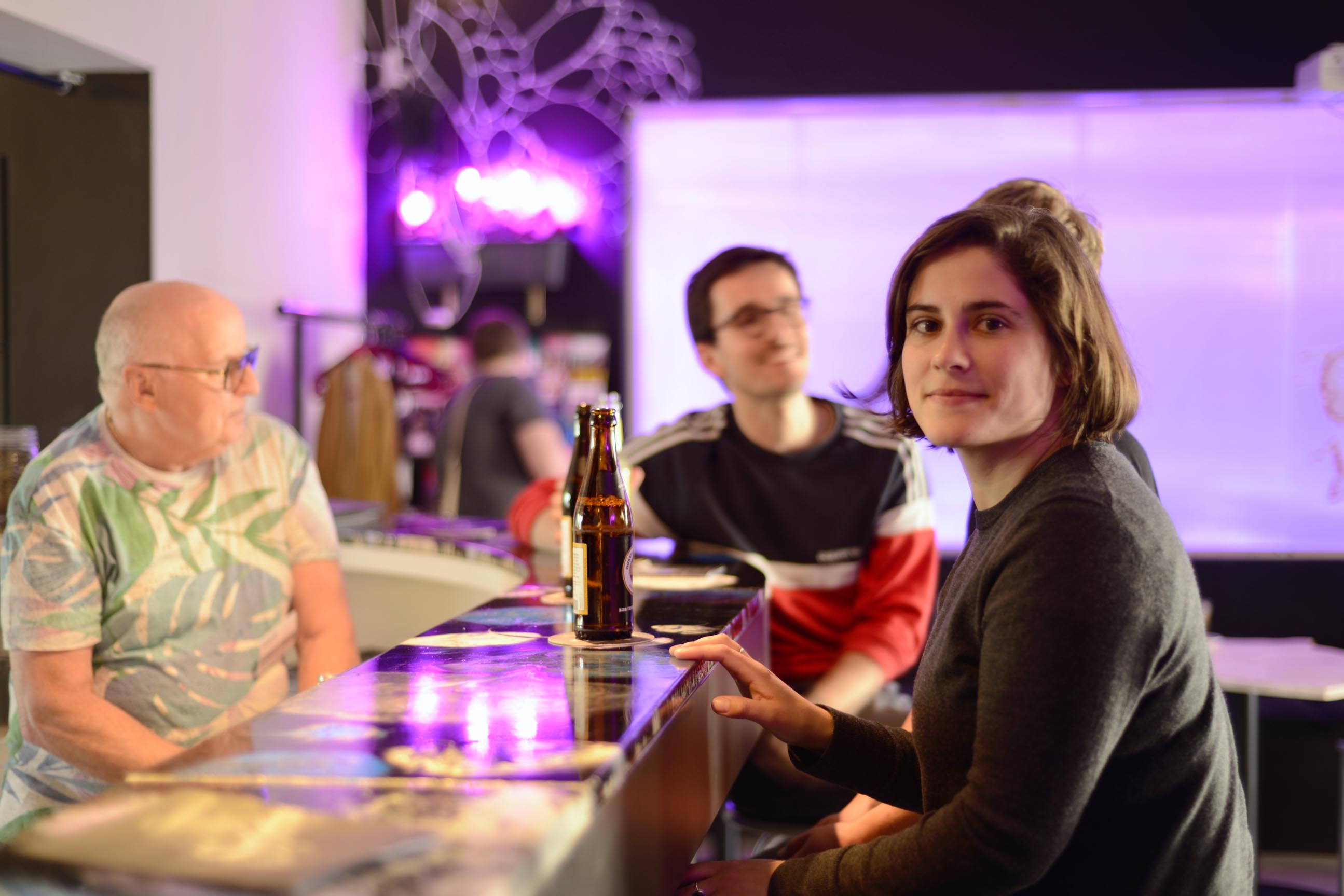
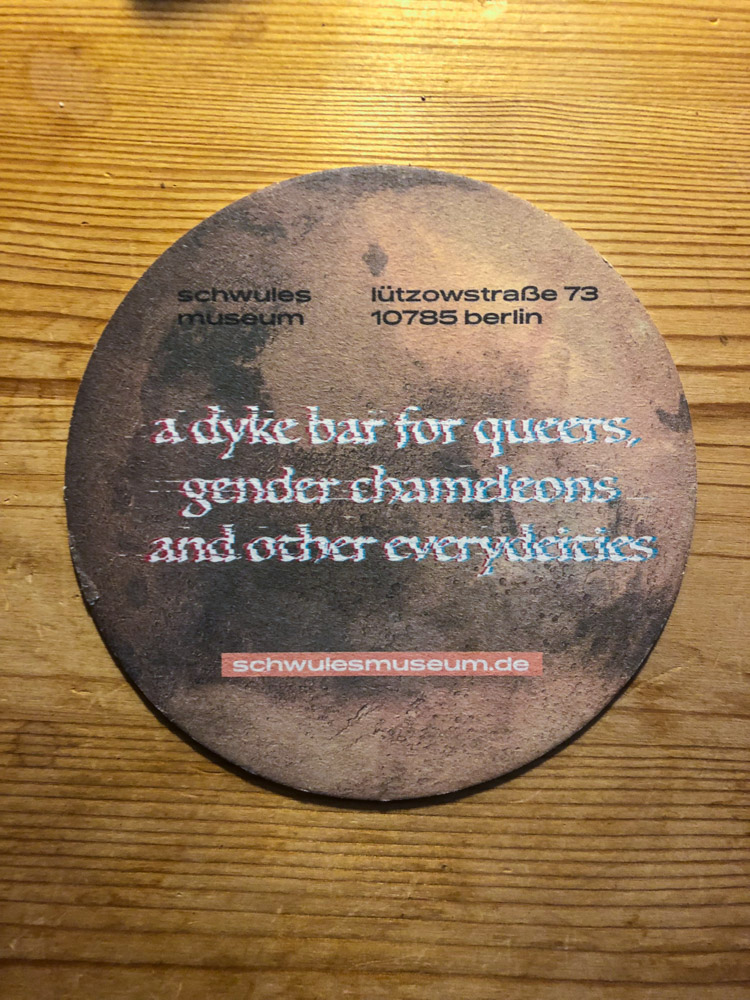
We understand the word dyke to describe queer people who have at some point in their lives experienced either chosen or prescribed femininity for prolonged periods of time. As dykes, we embrace the word as a broader and more inclusive term than Lesbian. Dyke as a word has been reclaimed from being a slur and strongly politicized in the homosexual liberation struggles in the US. Dyke can also include individuals who do not identify as women or on the binary gender spectrum and feel otherwise excluded from lesbian community and history. We use the term in its most expansive sense, and recognize that gender and identities are complex and fluid.
How can we envision a dyke bar in and of the future? In seeking new formations and considerations of spaces and places, SPIRITS begs the question: what has become of the contemporary virtual spaces that cyberfeminism began to utilize with sweeping energy in the beginnings of the internet? And looking ahead, how can the dyke bar be reimagined, reinstated? What ideas for a new framework can be taken from feminist science fiction? What kind of spaces exist between a queer notion of fluidity and the continued reality of forced attributions? What insights and perspectives can be offered given the historical overlaps between the witch trials of the early modern period and the simultaneous suppression of alternative knowledges, and with this, the broad expansion of contemporary western capitalism and colonialism; in a sense, corresponding battles over material, social, and spiritual space.
Functioning as both installation and intervention, SPIRITS breaks ties with the traditions of an institutionalized museum praxis. Through inviting guests into an interaction with the space, the dyke bar becomes a departure from the classic exhibition format. Prompting visitors to engage with the herstories of yore in a shared social space, SPIRITS reflects on the past while maintaining a forward-looking vision for contemporary and future collective work.
